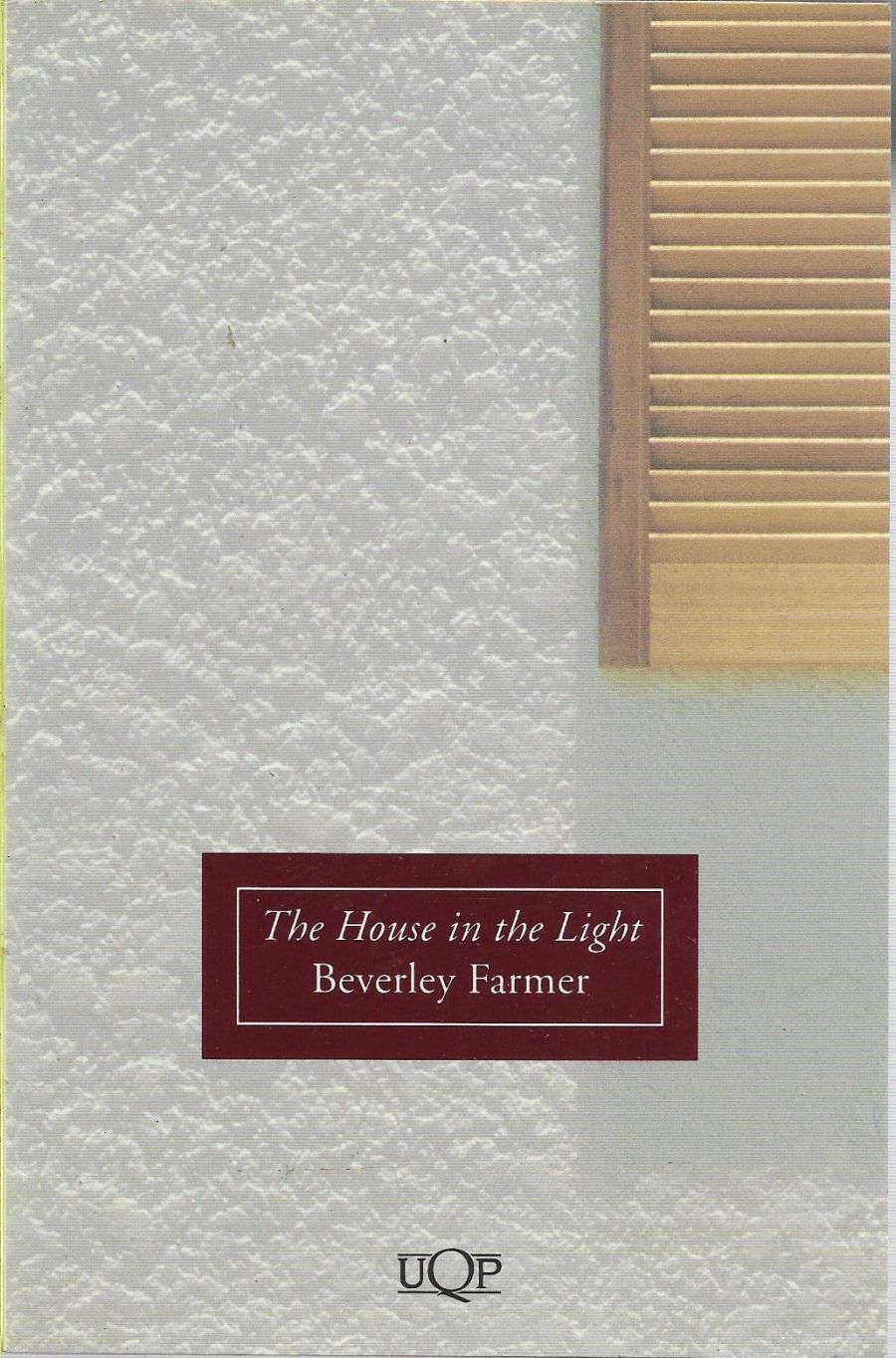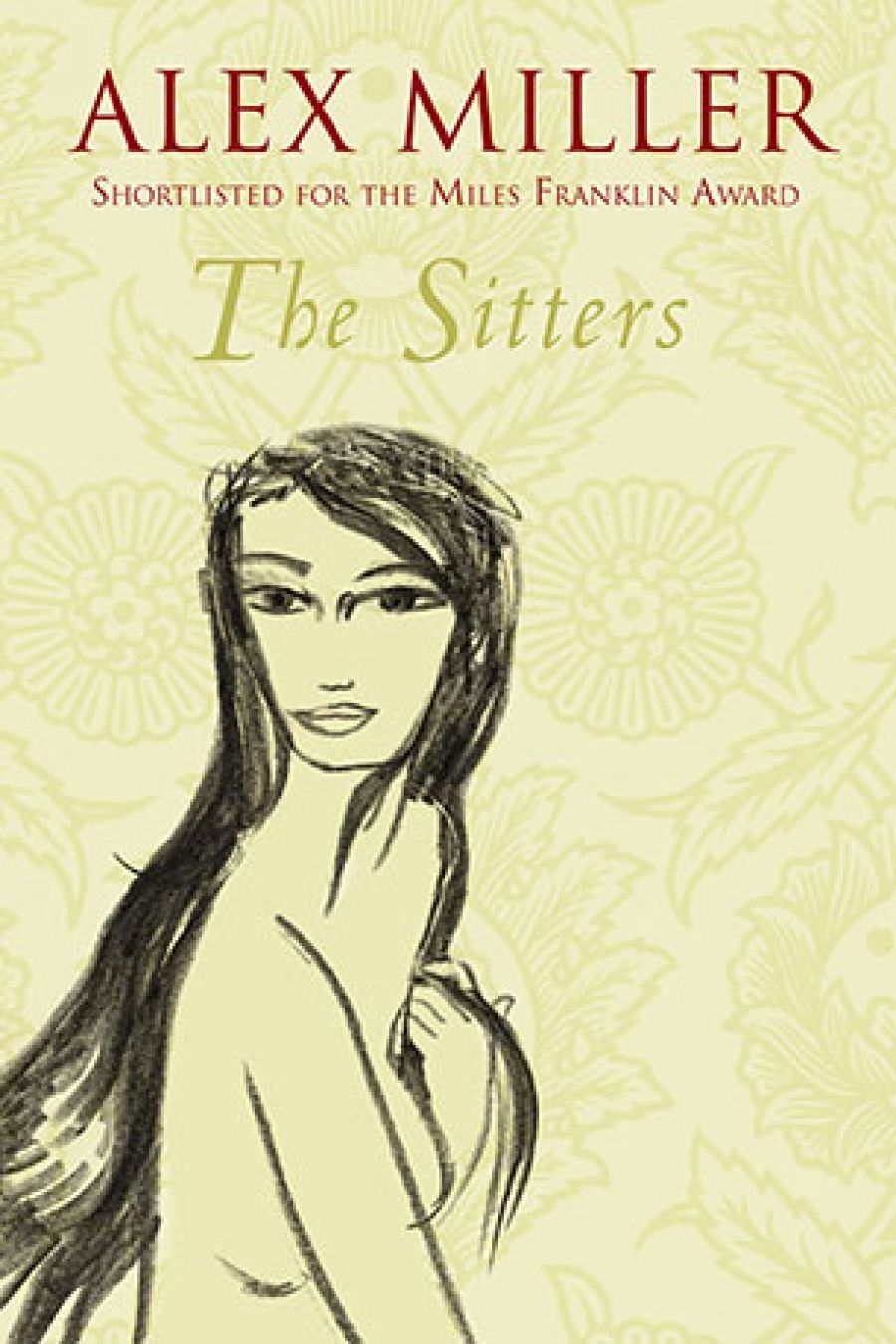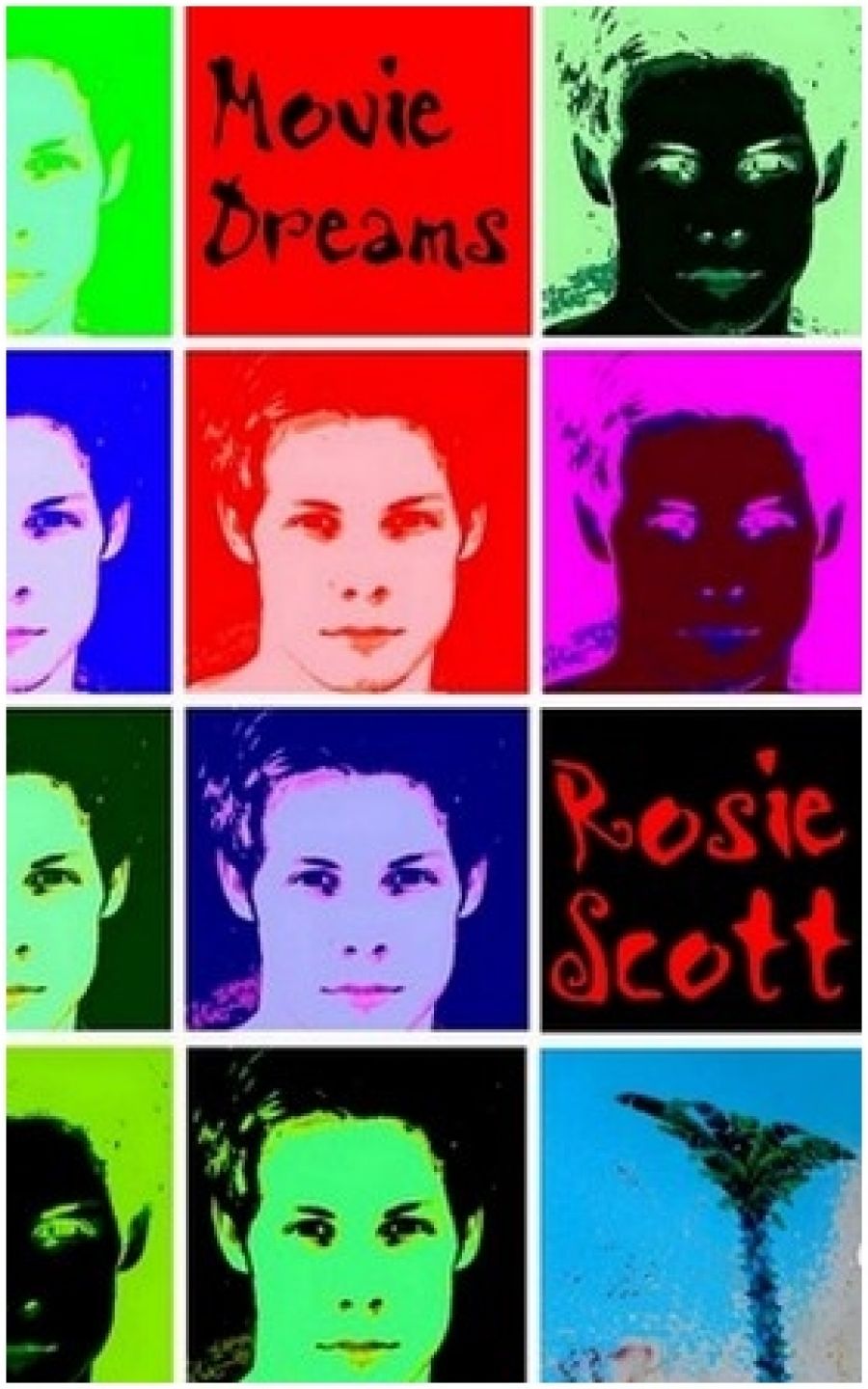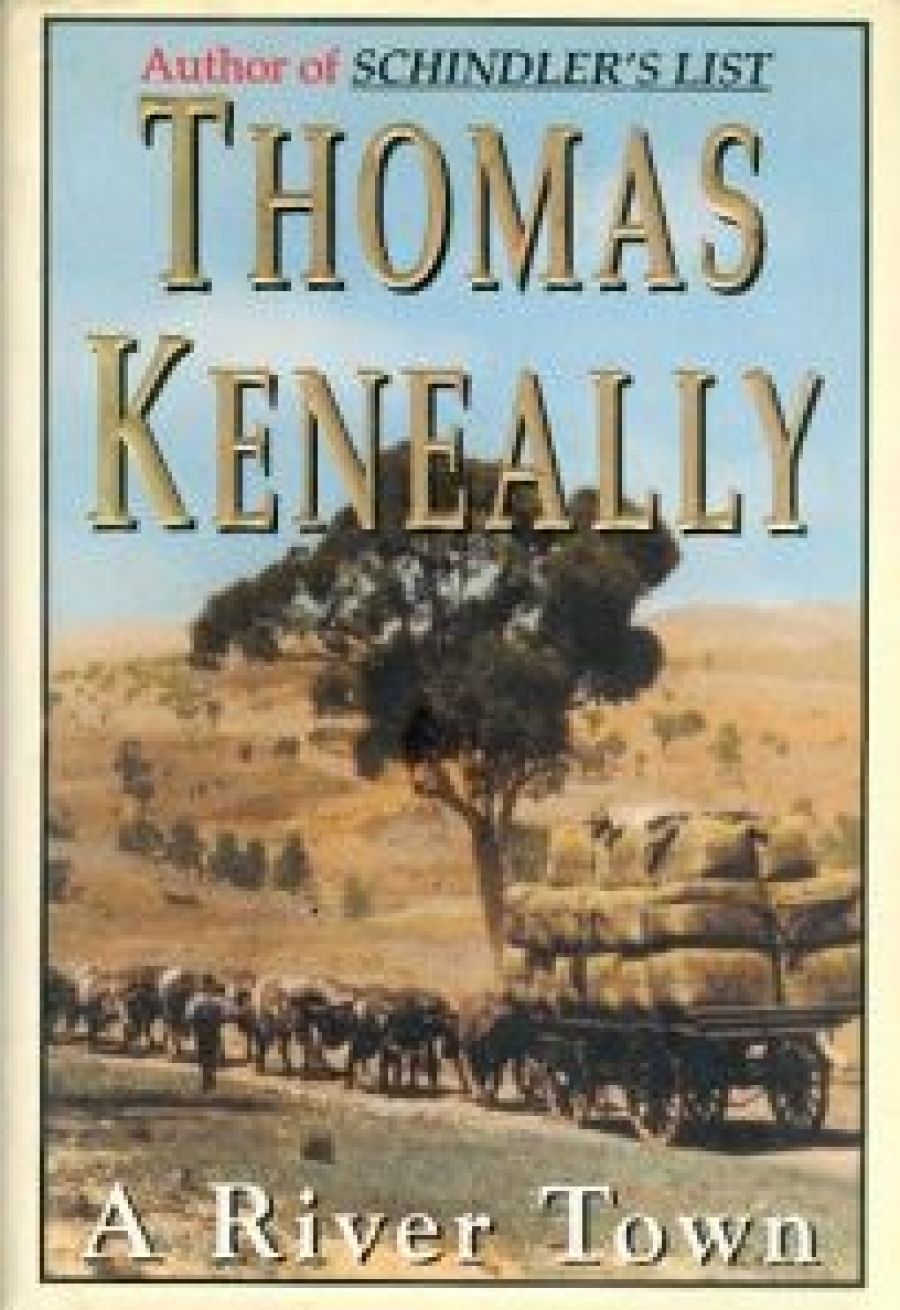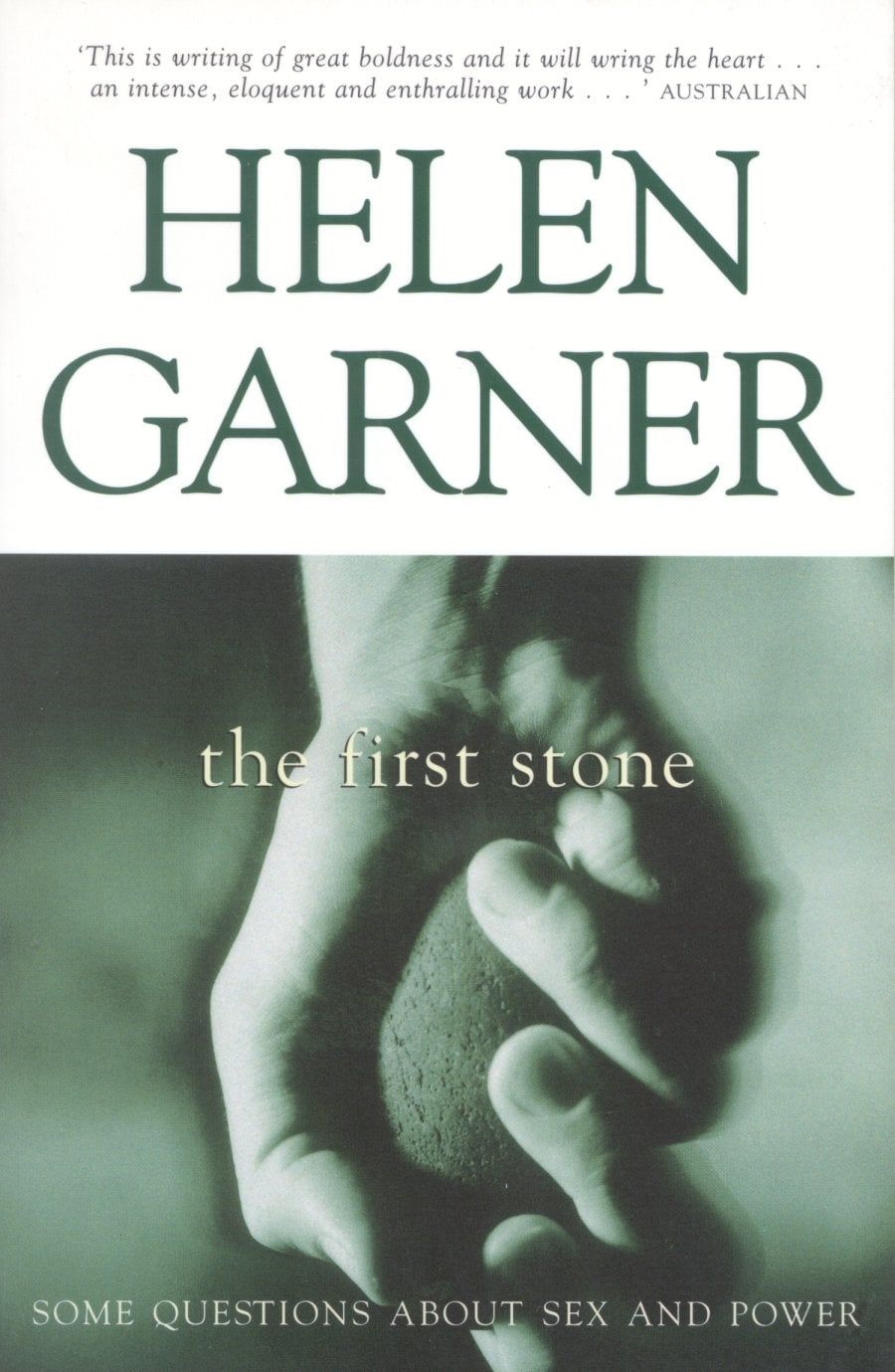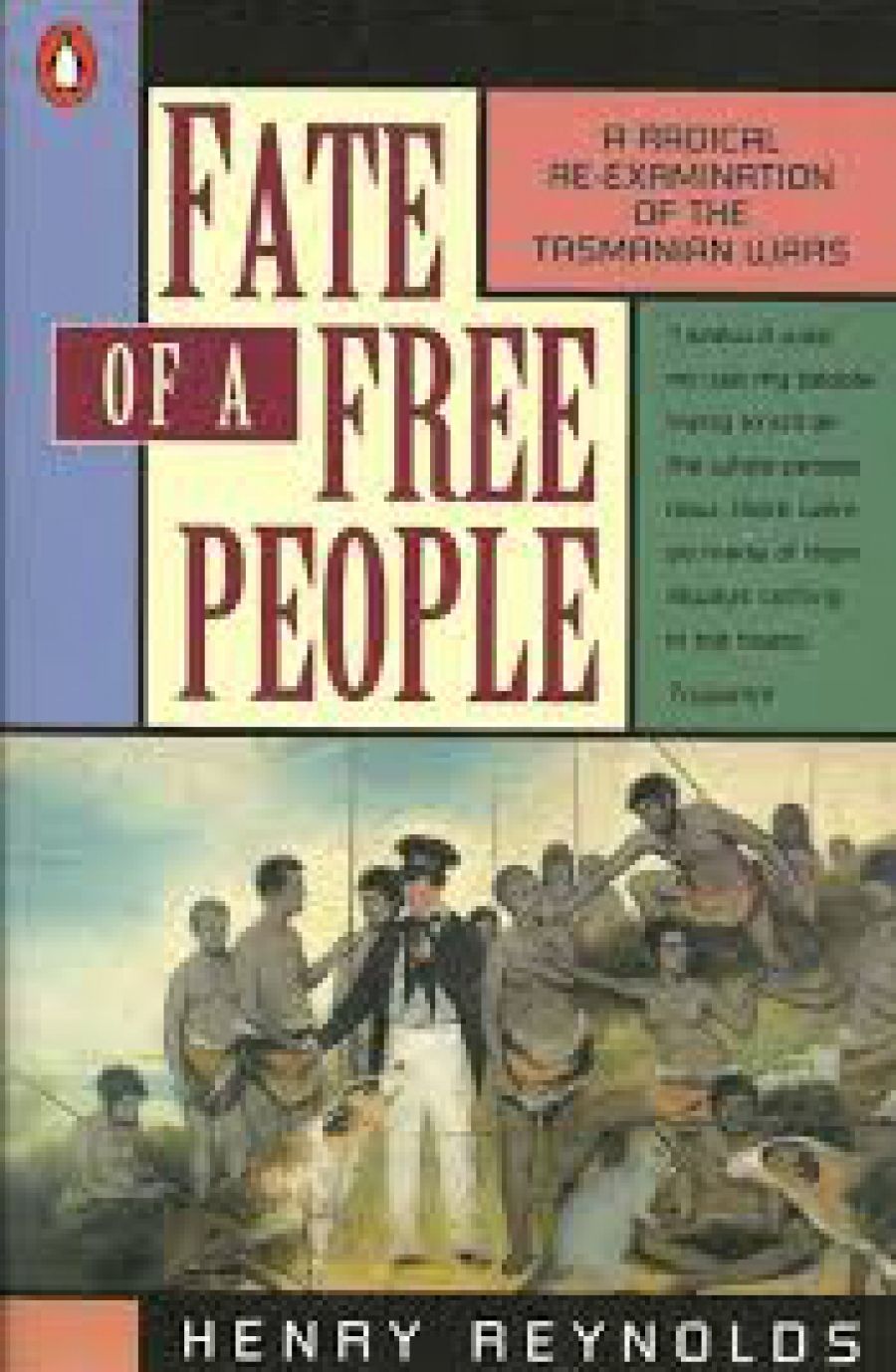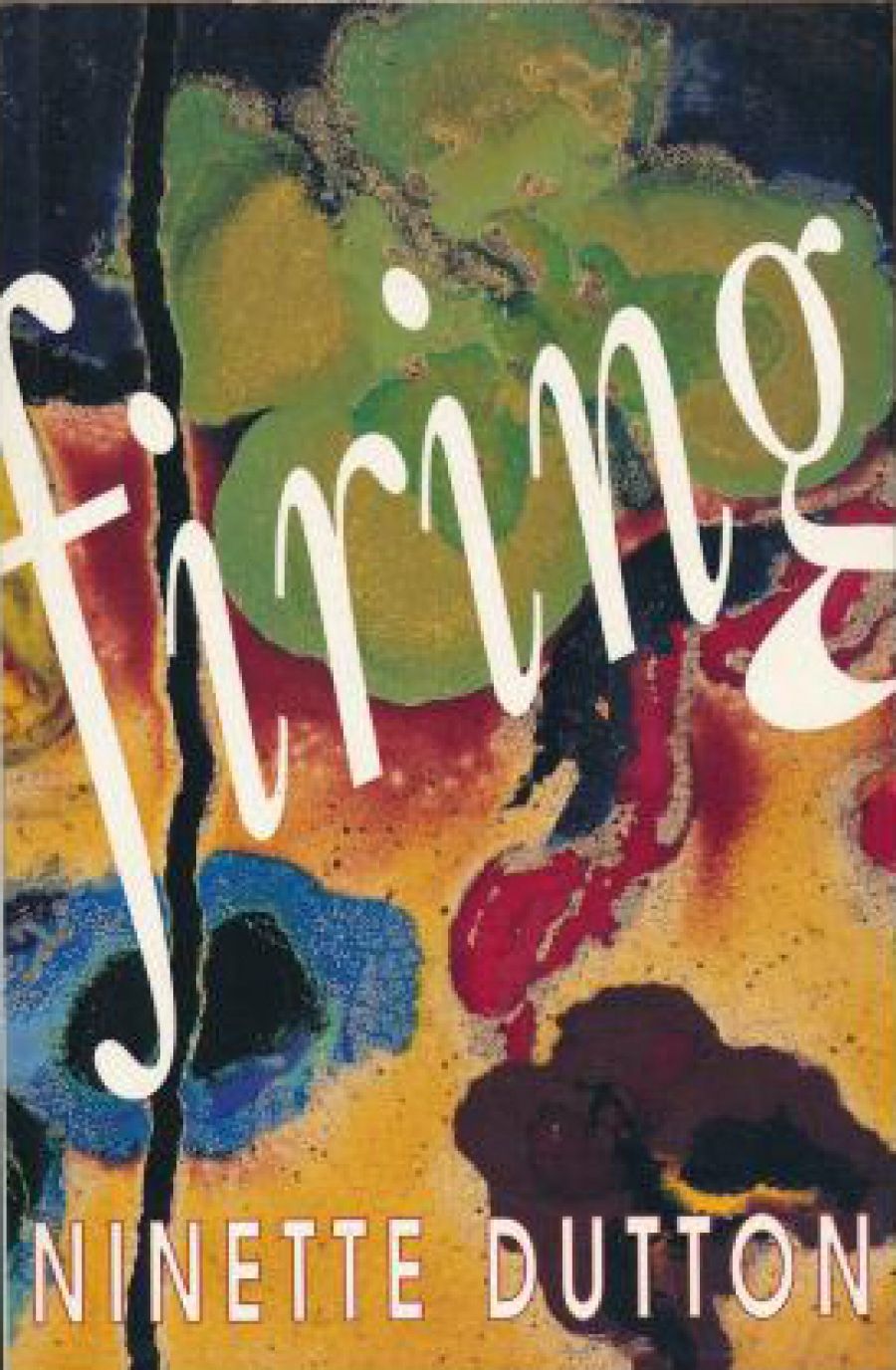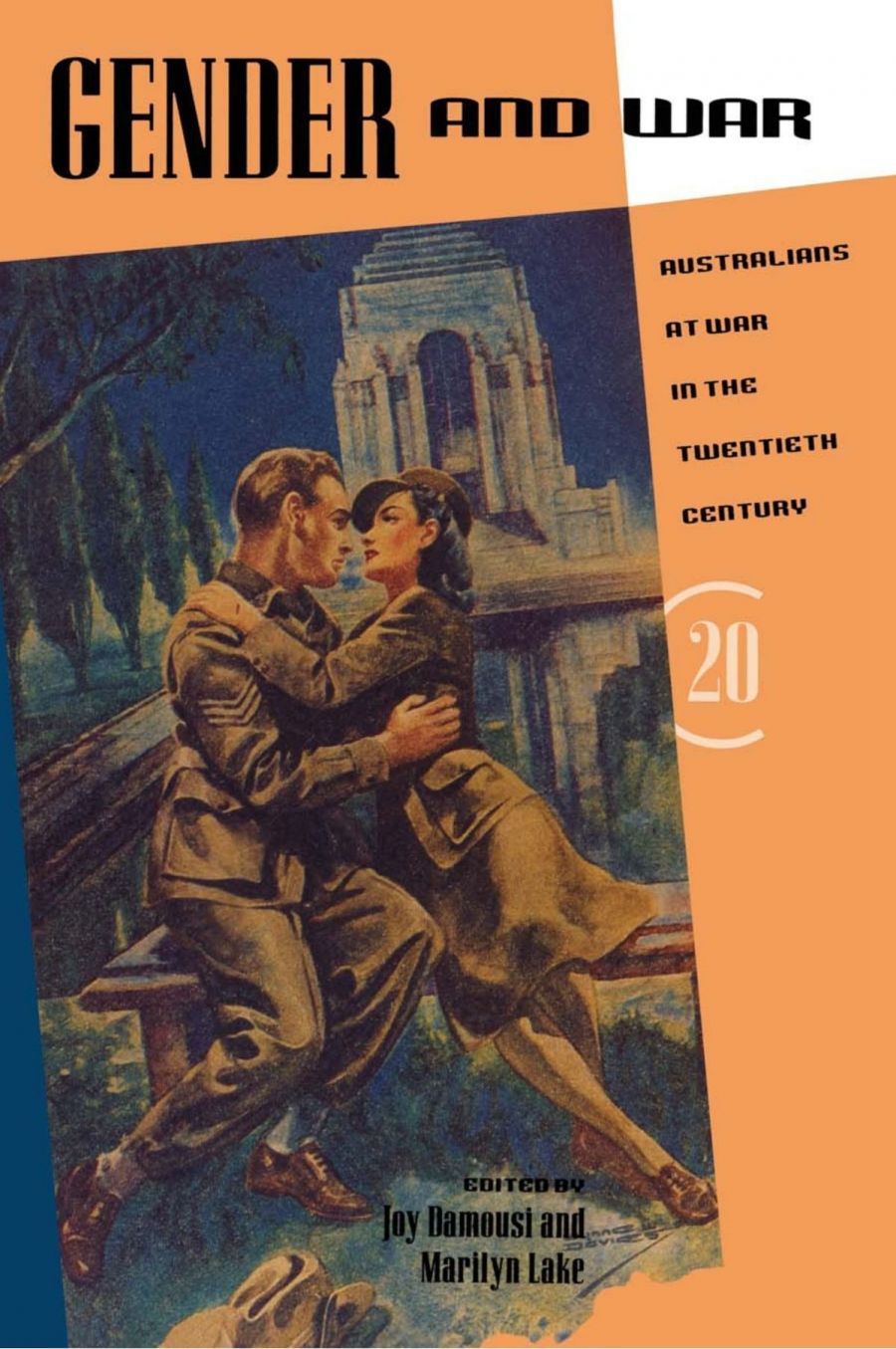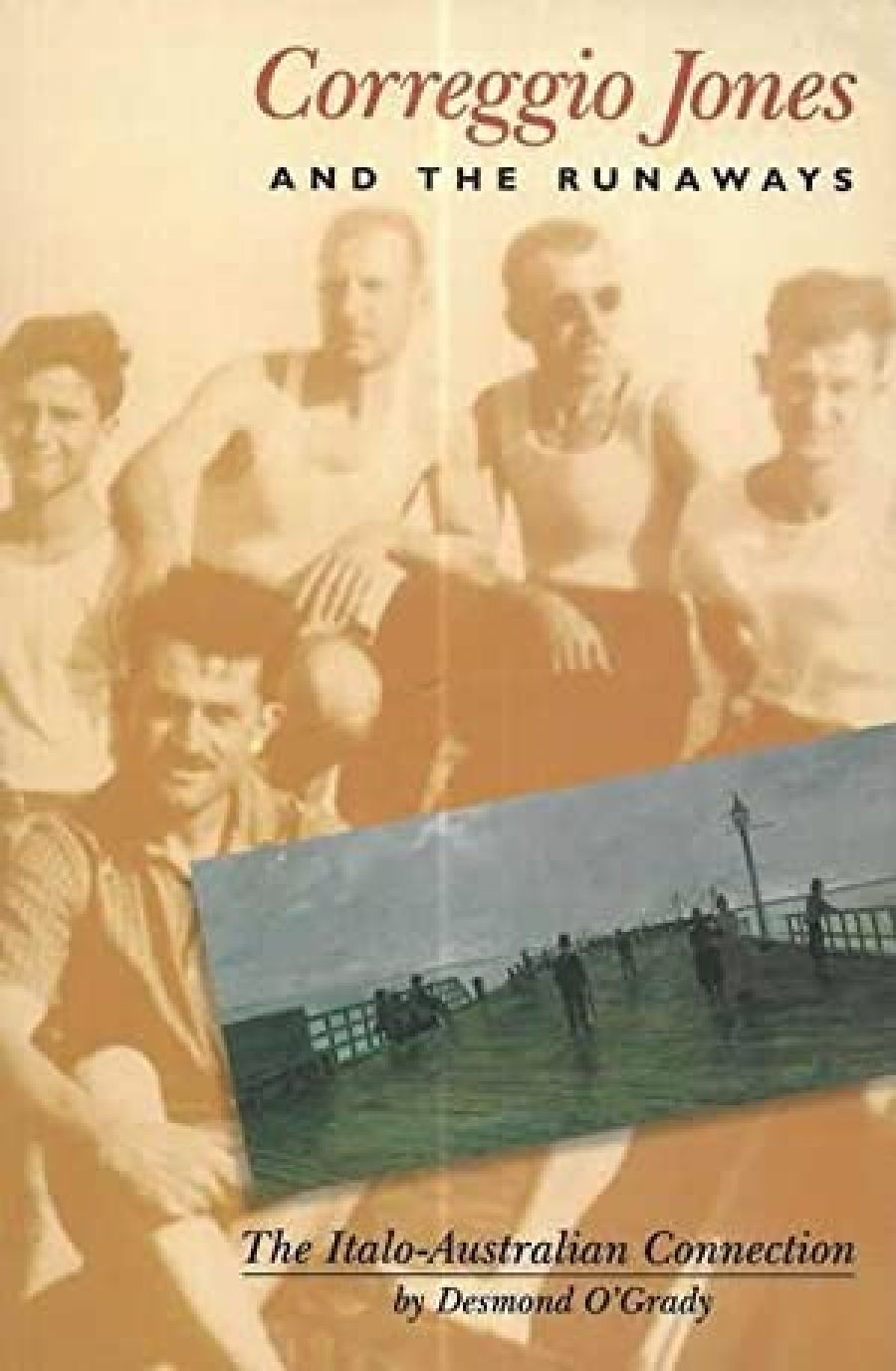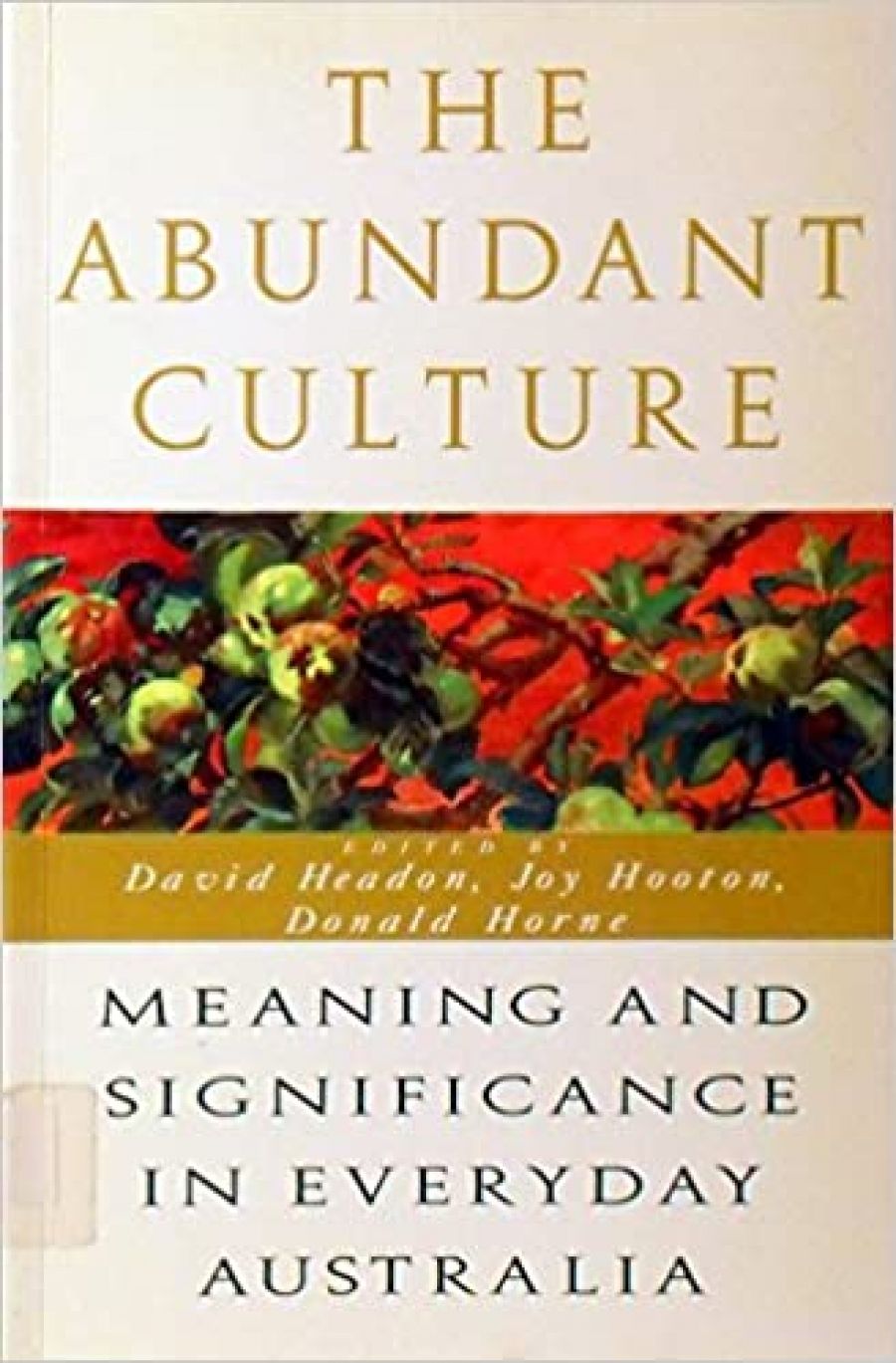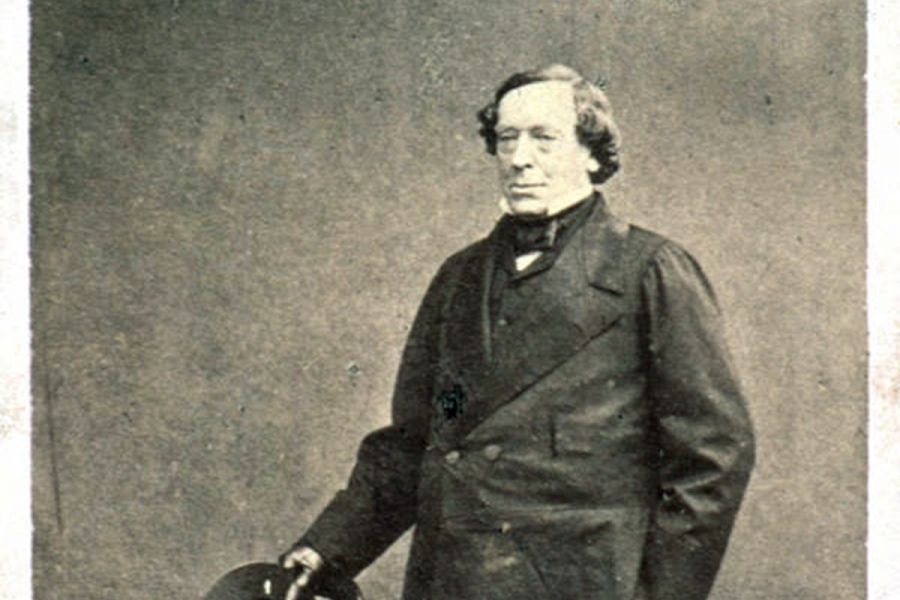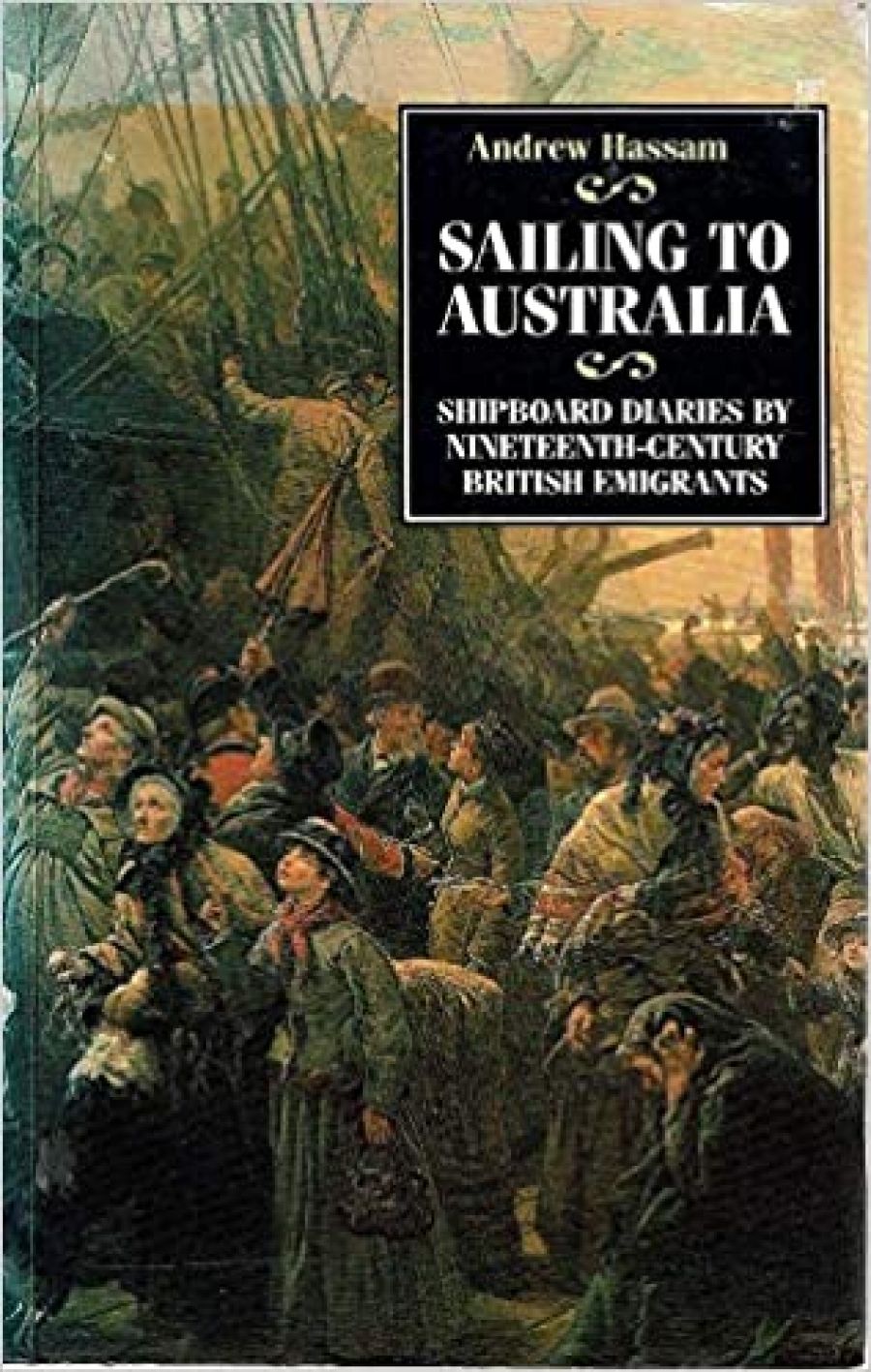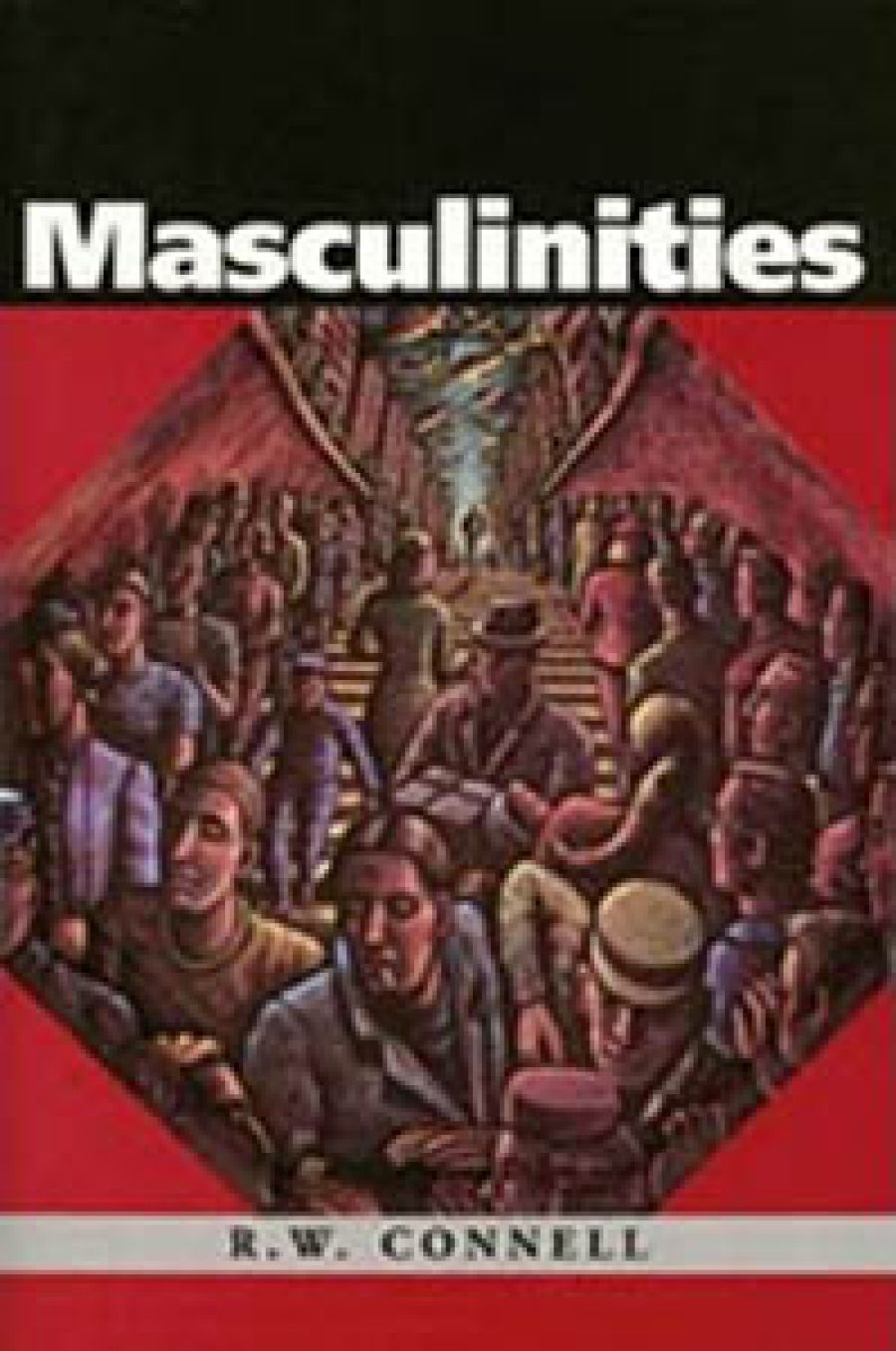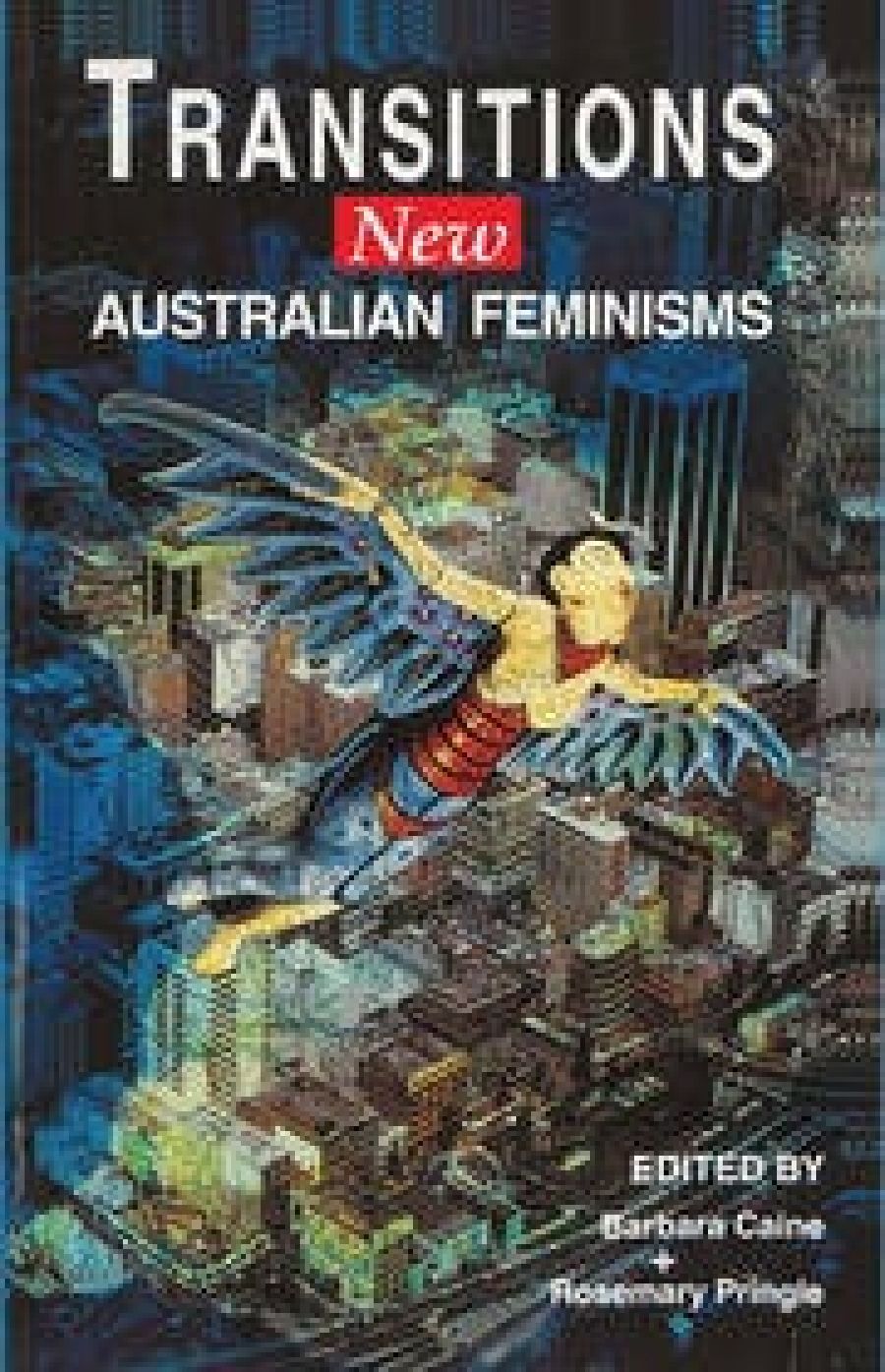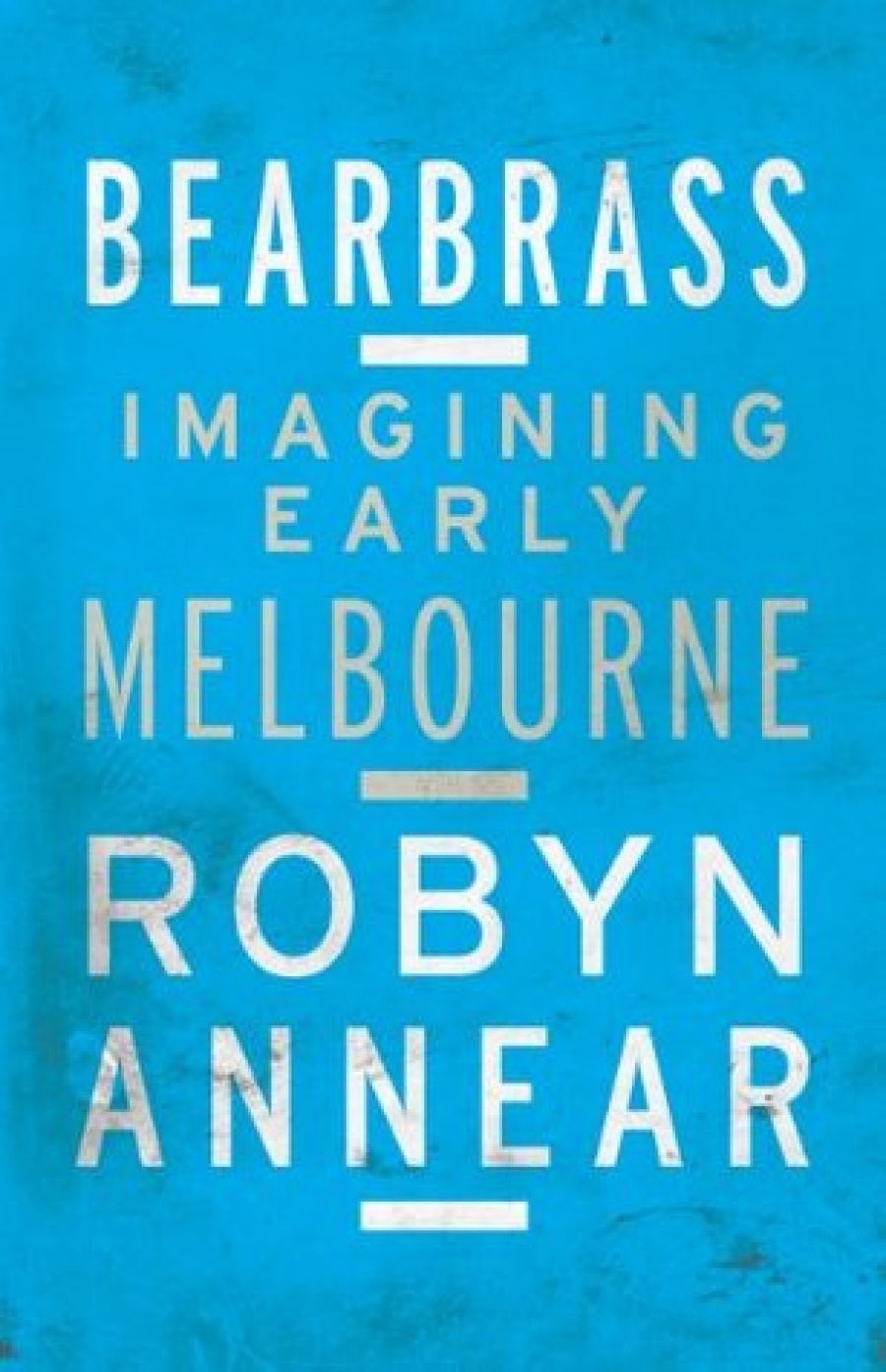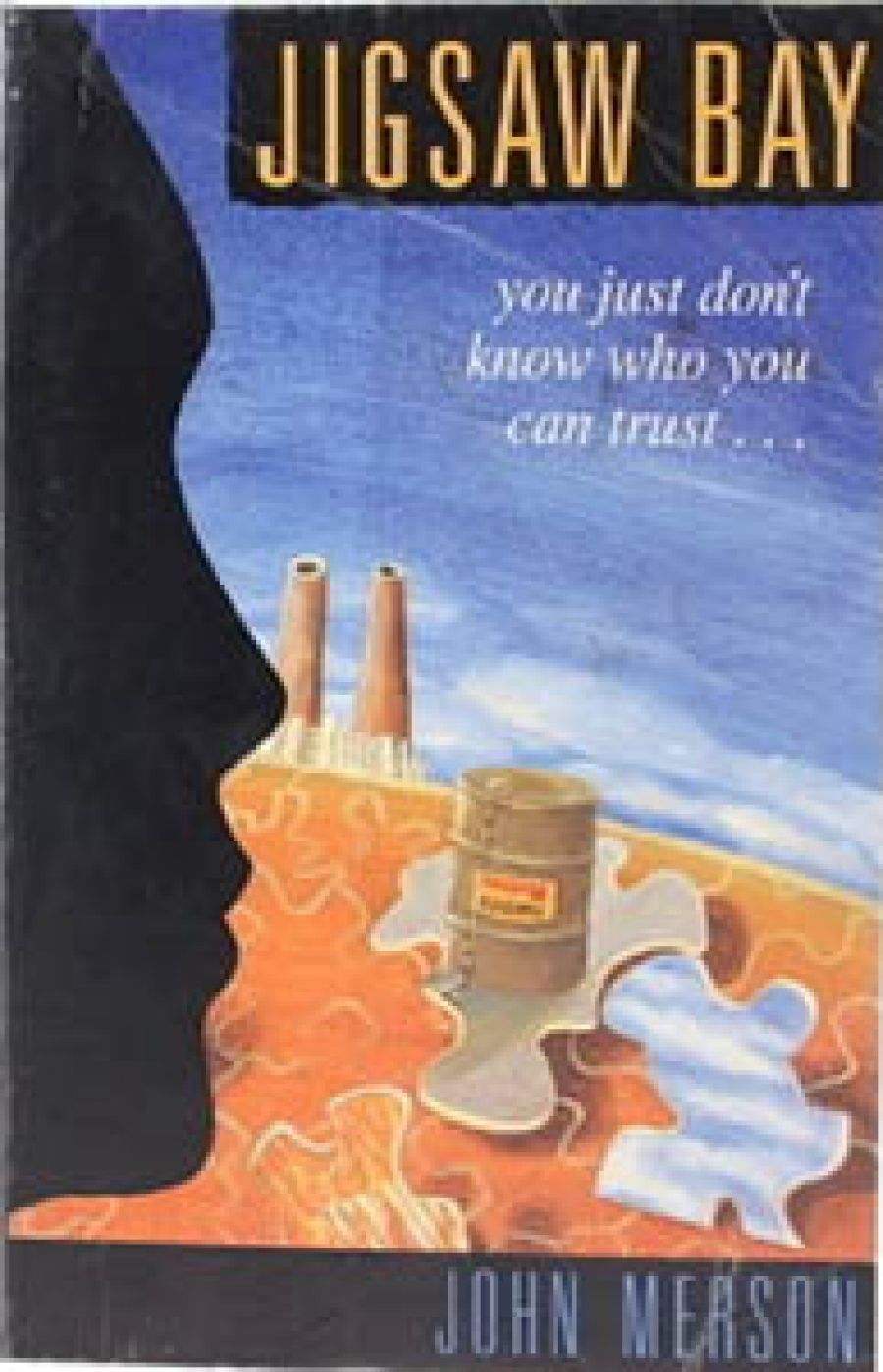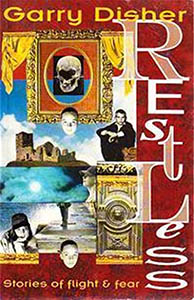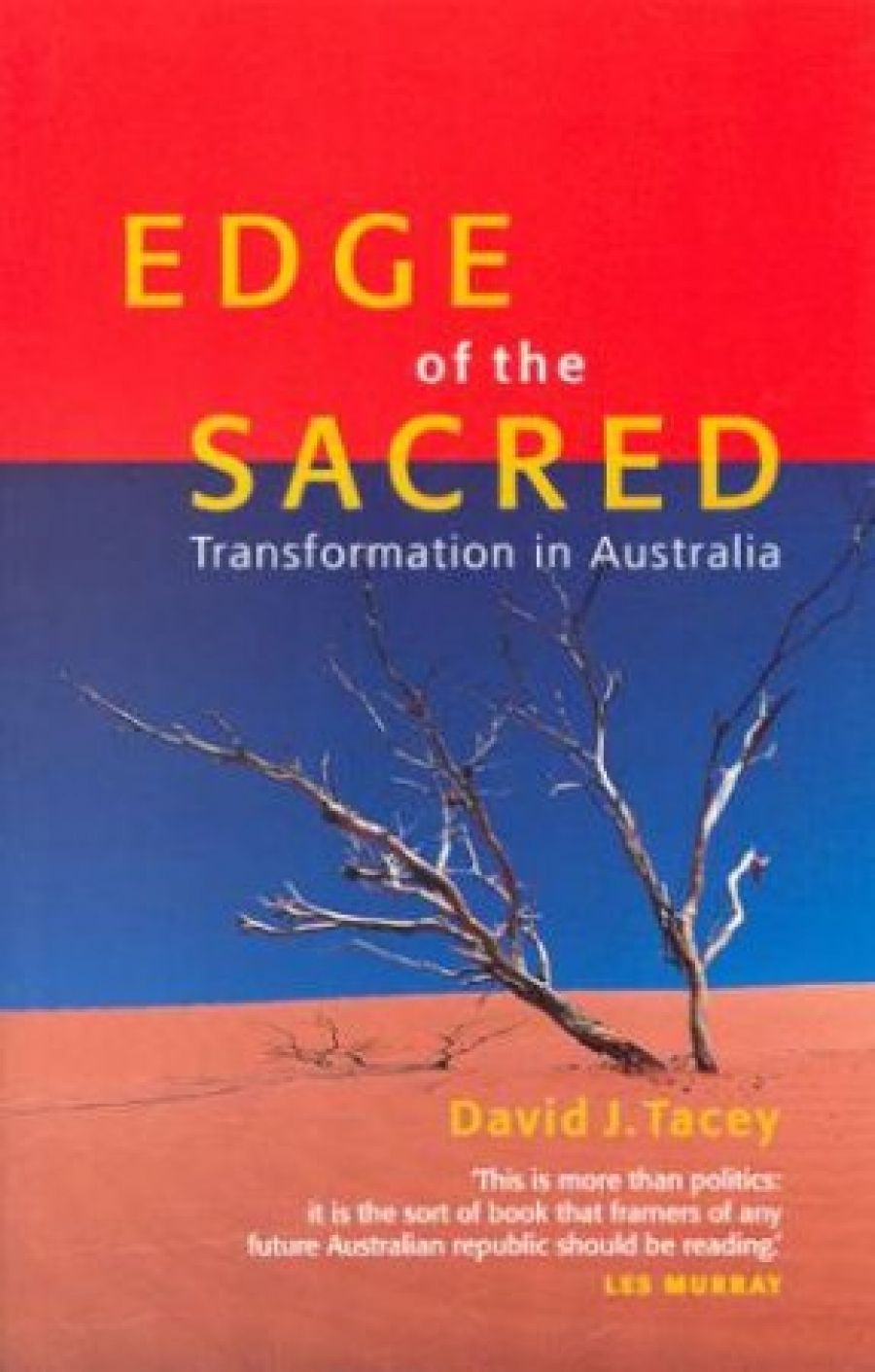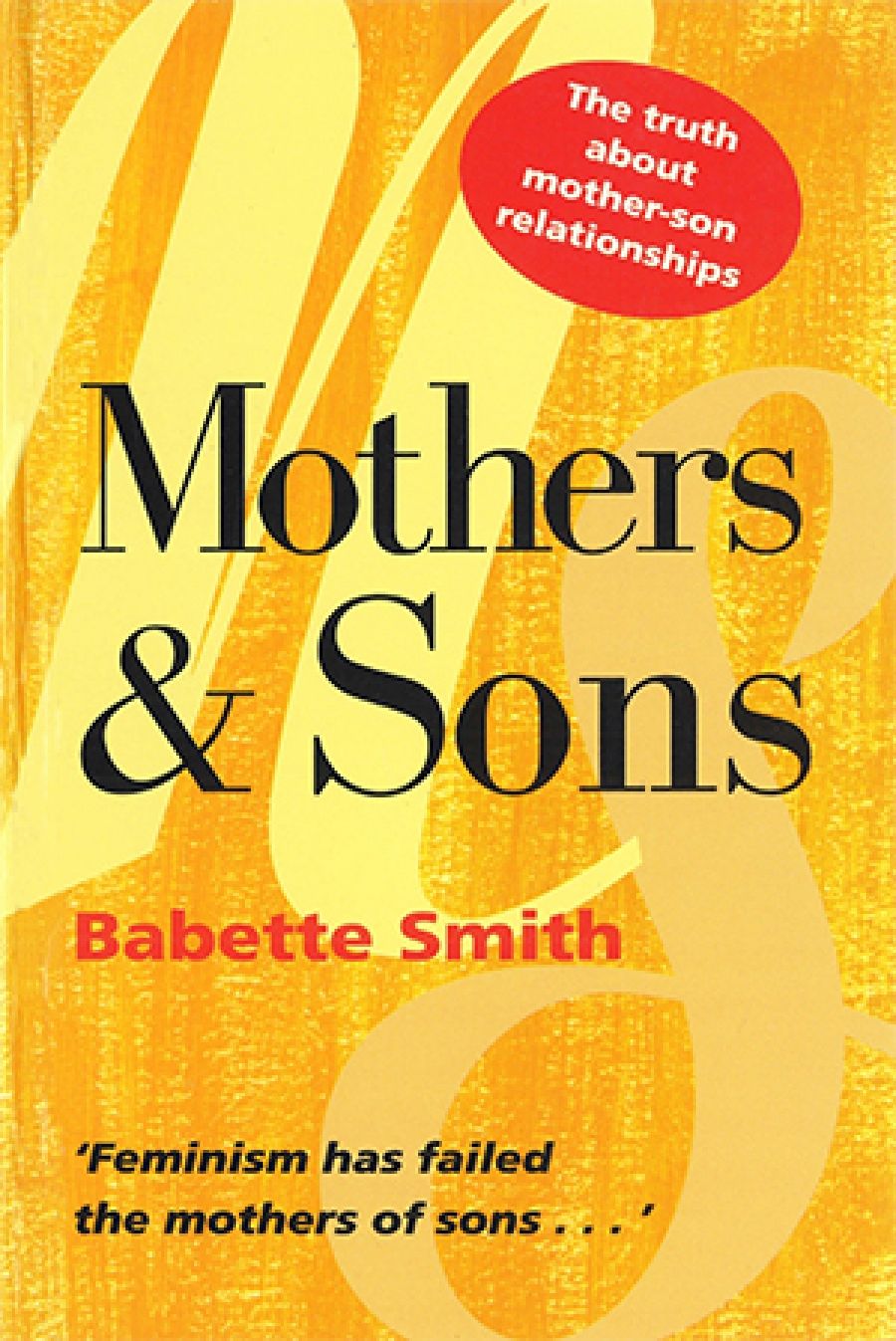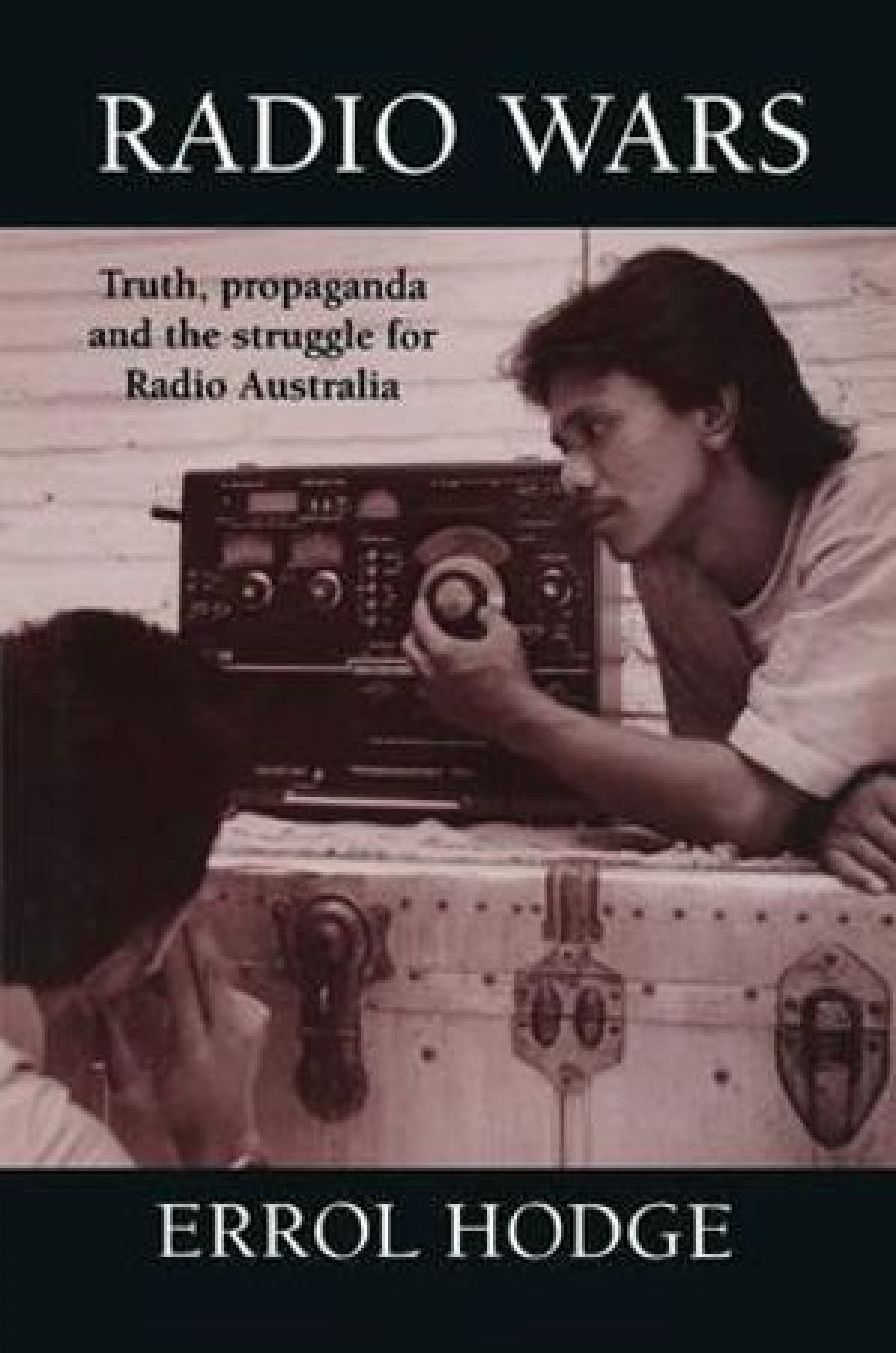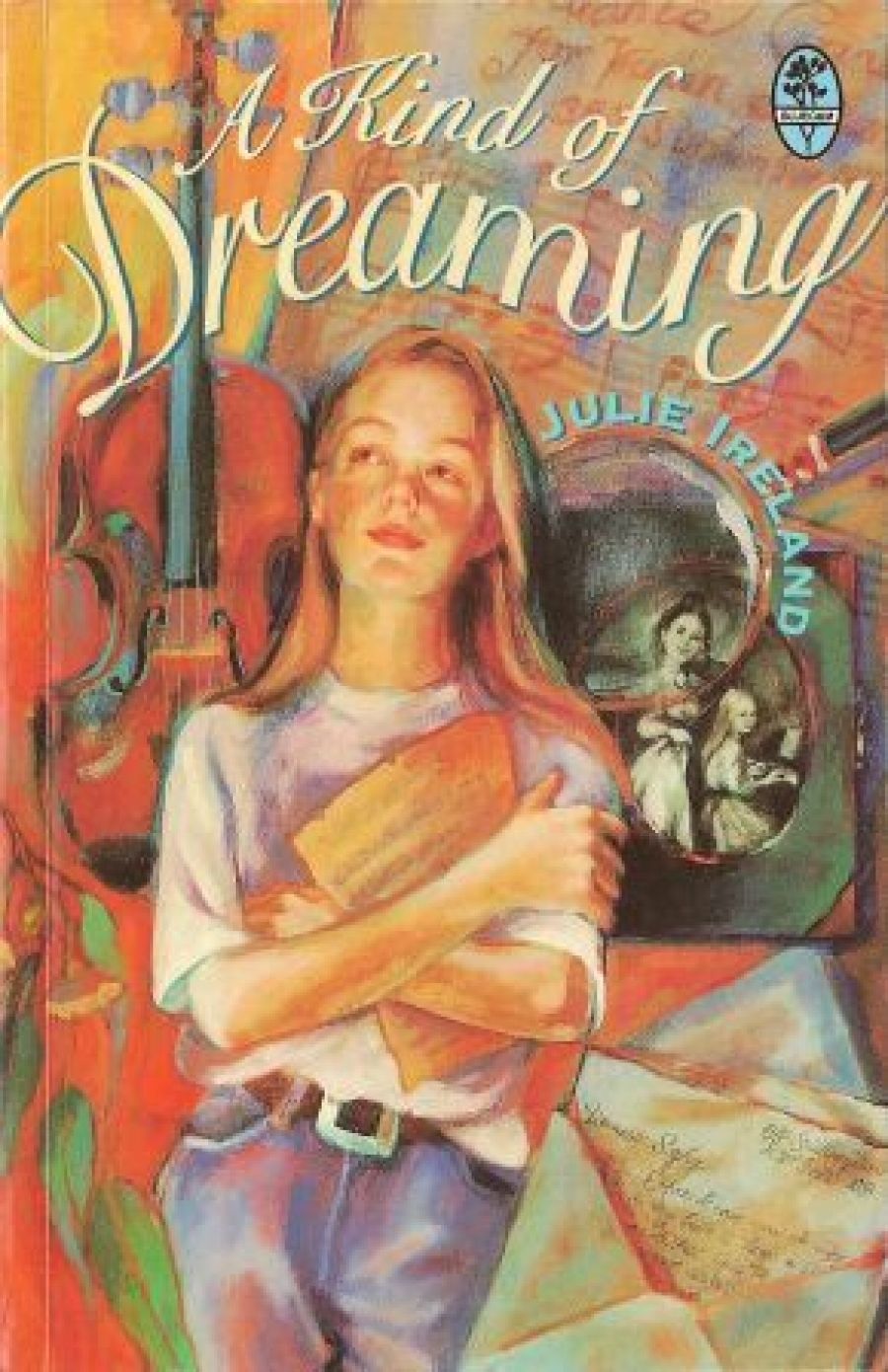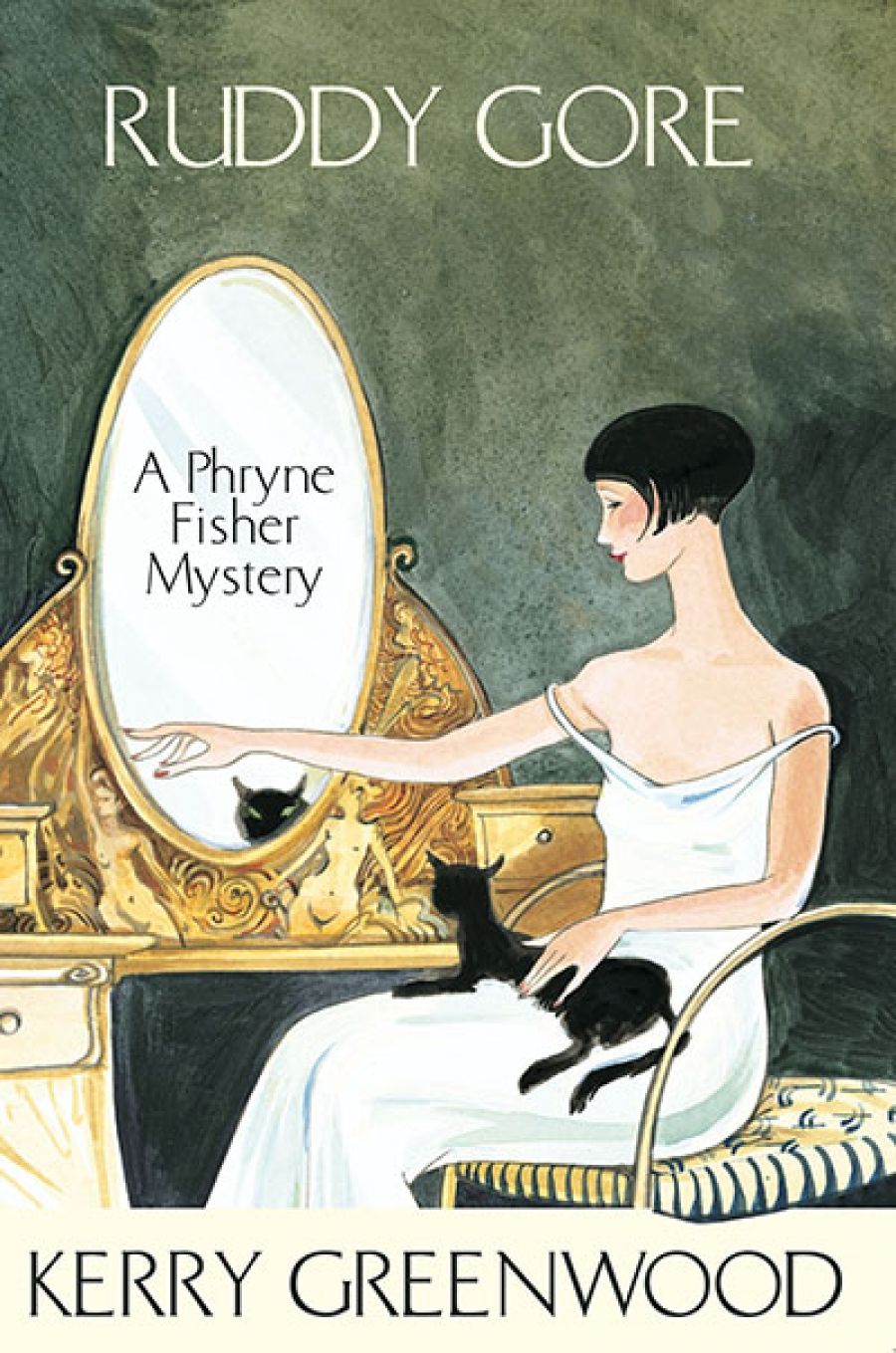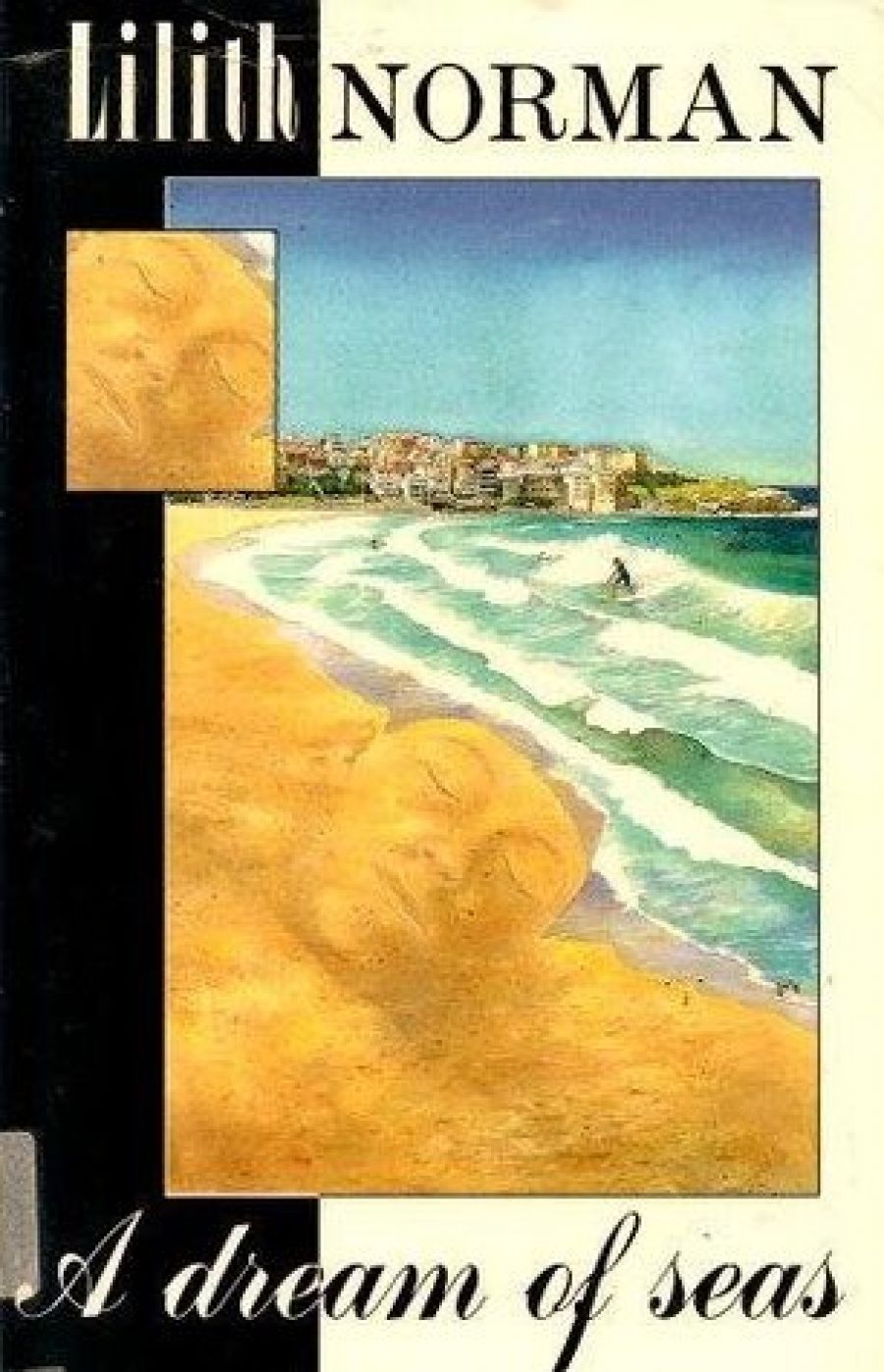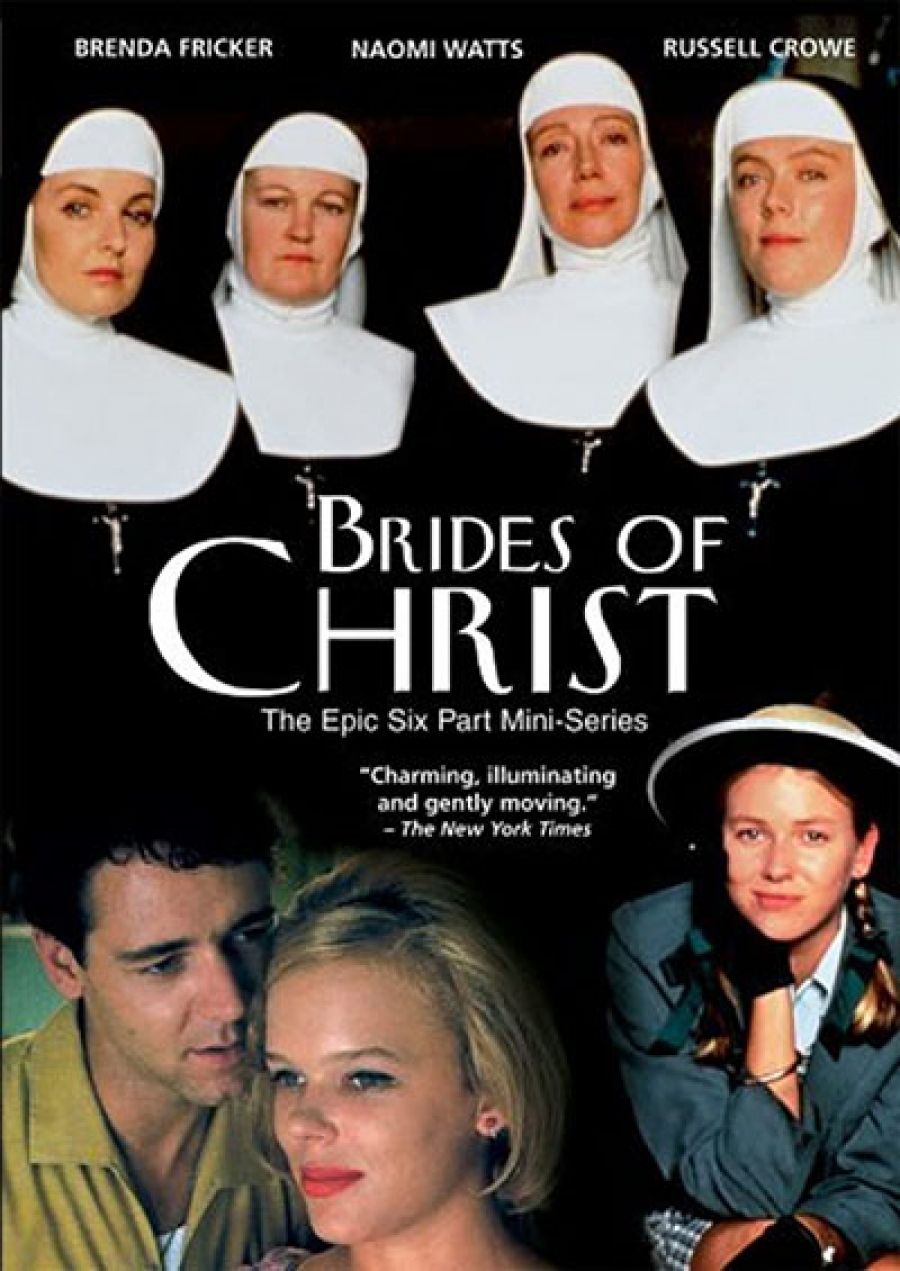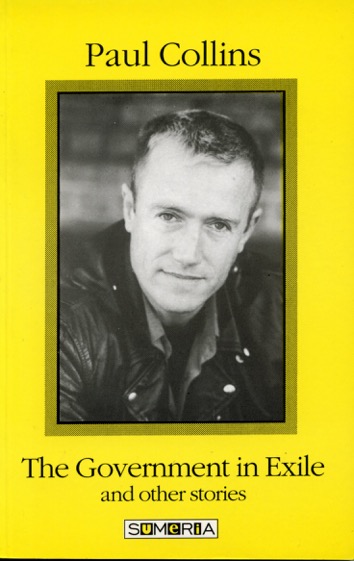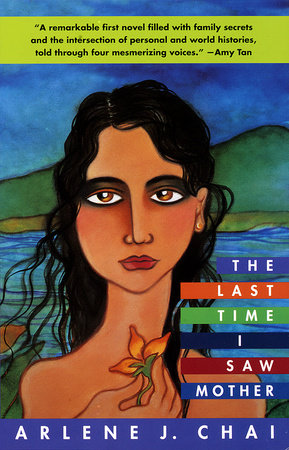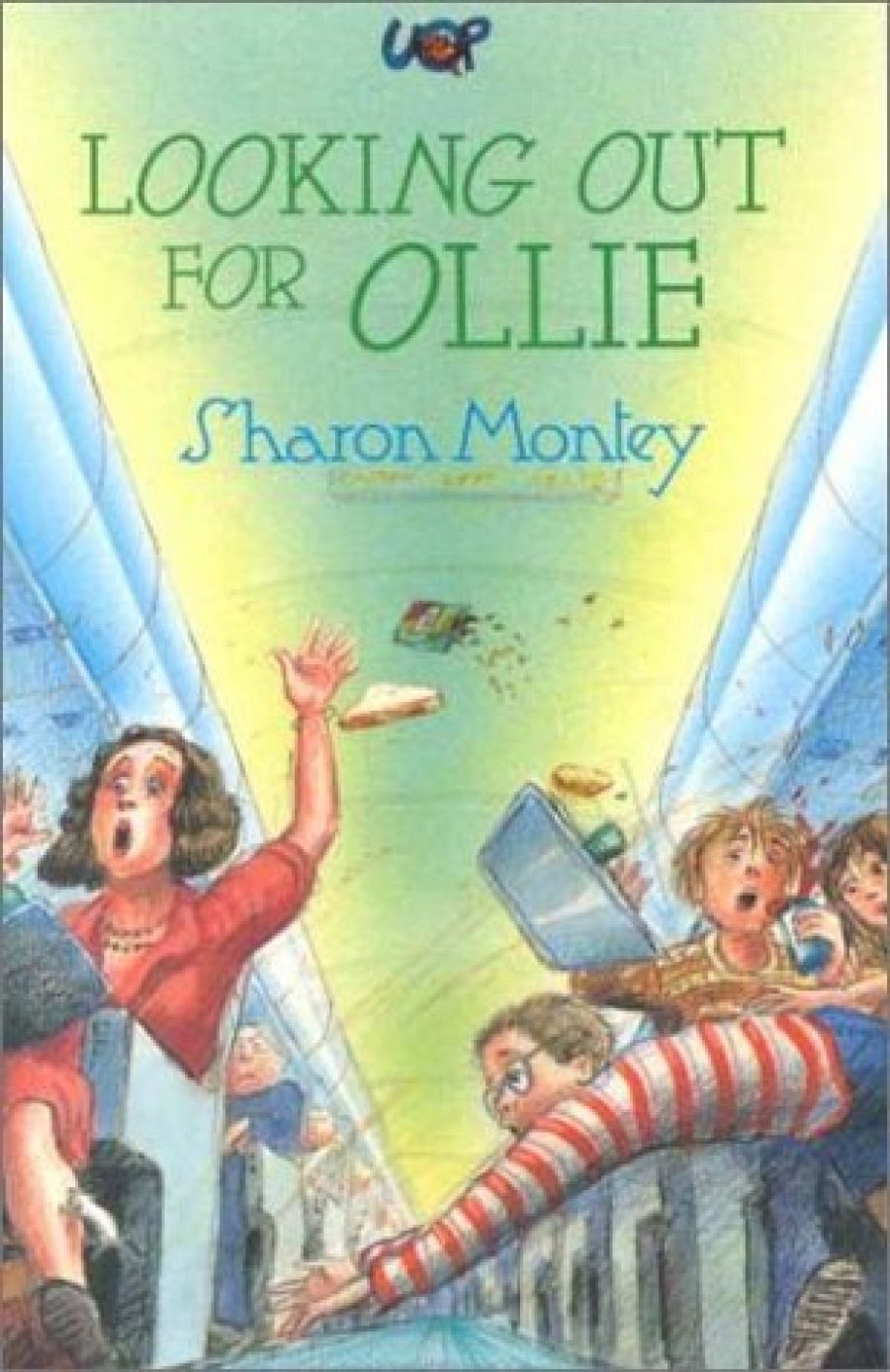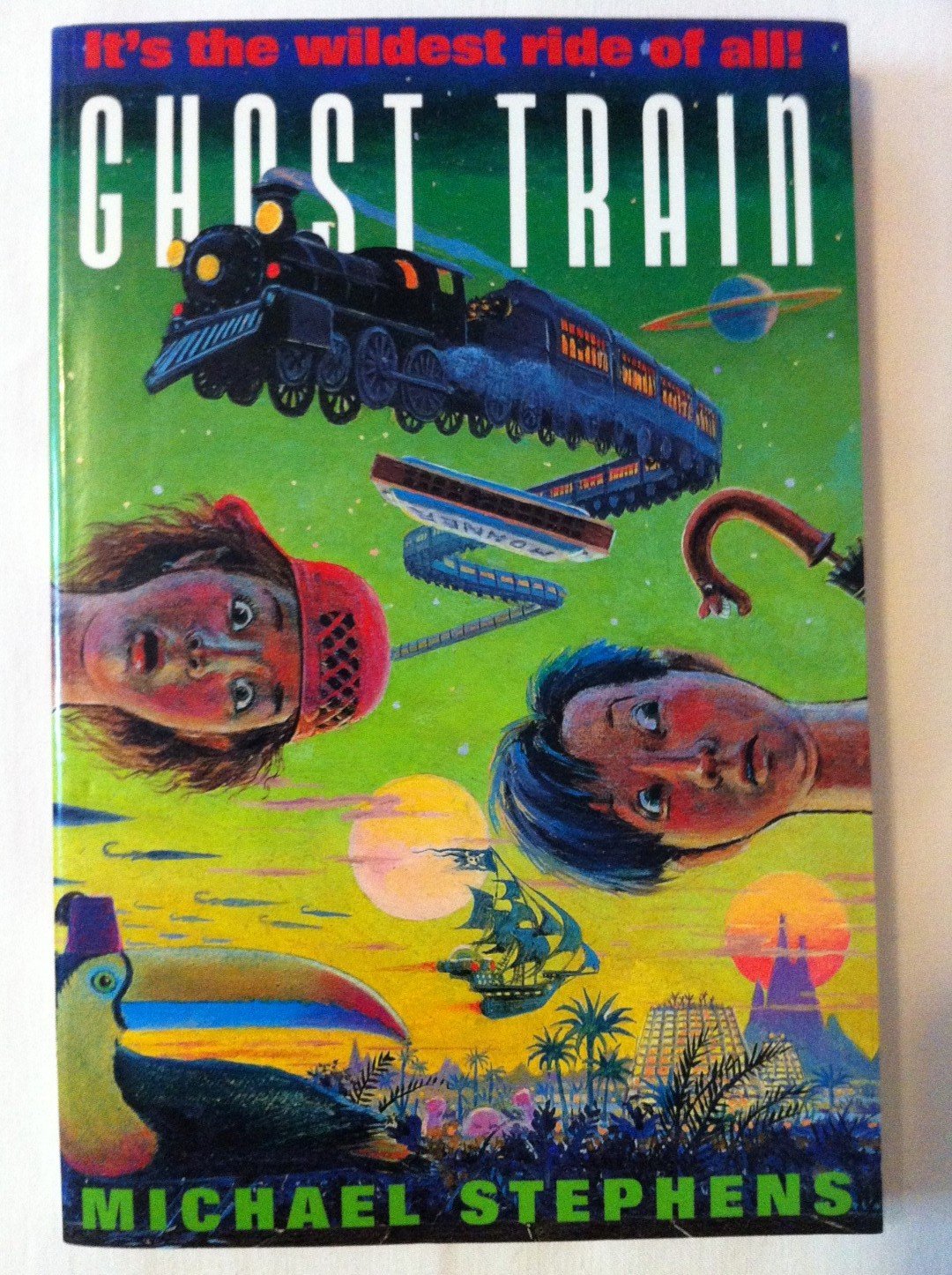I grew up in a once-upon-a-time land when milk and loaves appeared at the door to the jingle of bells and the clopping of hooves, when housewives were wistful Cinderellas in sacking aprons and hair permanently rollered for the ball, when men wore hats, and lifted them to the funerals of strangers passing in the street. That time – the forties, the early fifties – has been mythologised into a Camelot of Anglo-Celtic virtue, or a dark age of tribalism and British cooking. In my recollection, of course, it was neither, but simply the way things were. It is disconcerting to find one’s private past, one’s little collection of ordinary memories, become a matter of ideological dispute, and to discover, after peaceful decades spent reading historical documents, that you have become a historical document yourself.
The elevation is the more disconcerting because I know almost nothing of the history of which I have now become an artefact, having abandoned Australian History in my heart (the formalities took a little longer) in the fifth grade of primary school. To that point ‘Australian History’ had comprised a doleful catalogue of self-styled ‘explorers’ who wandered in what large Mrs O’Loughlin used to call ‘dretful desarts’, glumly littering names about (Mount Disappointment, Mount Despair, Mount Hopeless) until, thankfully, they ‘perished’. (I am happy to report that even in those benighted days and from those benighted texts I noticed that during their wanderings they would occasionally totter past people called Aborigines, and I would think ‘at least somebody knows how to manage out there’.) I would look at the wavery little tracks the feckless fellows had left on the school-reader map, and know I wanted nothing to do with them, or any who came after them. That avoidance has been sustained over thirty years as a professional historian living and working in this country. I know the Australia of the past as I know Chekhov’s or Tolstoy’s or Nabokov’s Russia: from novels. Like my Russia, my ‘Australia’ floats somewhere beyond historical time and geographical actuality: it is a bleached valley, a cluster of tall rooms embraced by a verandah, a suburb, a style, a set of possibilities.
Or so it was. Recently, for no clear reason – the stirring times, perhaps, or fallen victim to that confusion of narcissism and nostalgia which tends to afflict people at the historical document stage – I have wanted to learn more. Another round of novels? Biographies, perhaps? No: I wanted more direct access. I would do what historians always do; I would go to the sources. Or, rather, to one source: this was to be an essay, a Sunday stroll, not a major expedition with elephants and guns. And I wanted at least the illusion of serendipity: I wanted my source somehow to come to me, to appear, like a note in a bottle, a message from another time magically tossed to land at my feet.
And so it happened. Pursuing a quite different matter, I came upon a couple of paragraphs written by a Mr G.A. Robinson. I already knew something of Robinson: that he had been Protector of the Aborigines in Tasmania in the early days, that he had been somehow mixed up with Truganinni, that he had brought her to Victoria. That he affected a strange cap, like a pastry cook gone to sea. And that he was a foolish and arrogant man, or was I mixing him up with someone else? I asked an Australianist who was consulting me as a historical document at the time if he had anything of Robinson’s writings. He had: his journal of a six-month-long trip made in the winter of 1841 from Melbourne to Portland and back, with a swing through the Grampians on the home leg. In 1839, after Tasmania, Robinson had been appointed Chief Protector of the Aborigines for Port Phillip District. He was to make over twenty such expeditions, keeping journals throughout. The one my friend handed to me had been edited by a man called Gary Presland, and published by the Victorian Archaeological Survey. Did I want more? Did I want a full bibliography?
I did not. I had my note-in-a-bottle. I would uncork the bottle, and release the Mr Robinson held inside. I would get to know him, and he would be my guide. Of course there were other Mr Robinsons: in the memories of those who had known him; lurking in libraries in the pages of novels and histories. There were the Mr Robinsons of all those other journals; men of the same name and much the same body, but differently freighted by experience and expectation. It was the Mr Robinson revealed between 20 March and 15 August 1841 that I was after.
For a historian it is luxurious indulgence to settle to a single, wilfully circumscribed text. Private journals can be expansive, unbuttoned affairs, and if regularly kept hold at least the promise of revealing not only ‘character’, but the natural movement of the writer’s mind. A couple of hours reading, and I knew I was in luck. Mr Robinson was a most devoted journal-keeper. Almost every night, whatever the hardships of the day, and after he has talked with any ‘sable friends’ about, he secludes himself to write. The white men travelling with him are convicts or servants: he brooks no intimacy with them; he has his journal for company. The tone slides easily from the practical to something very like the conjugal. He might begin with the weather, and a sharp, analytic account of terrain traversed. There might be housekeeping to do: out-goings of potatoes, blankets, shirts; incomings of natives contacted. He jots down words to add to his lists, of places seen and persons met with, of plants, animals, tools (he dreams of completeness). He relaxes, remembering beguiling things – a flight of blue parrots, a genial dog, geese floating thick as waterlilies on a reedy lake. (He notices animals, and is tender towards them.) And he rehearses the events of the day: confides conversations and encounters, shapes them into narrative, sets them down. His journal will serve as a source for official reports, but it is very much more than that: it is a reviewing, a refreshment, a recreation of his most private self. He and his journal, in whatever frail light, on those wintry nights, in those comfortless camps.
And we, you and I, reading over his shoulder. Against the odds, the Chief Protector is a natural writer. Occasionally he strikes a conventional attitude, or a too-laconic note stares mutely, but typically he is as direct and crisp as his weather reports: ‘Severe frost during the night, ice this morning near thick as a dollar. 10, fine sunny day, tranquil light air.’ He wastes little ink on men’s appearances (it is character he cares about) but he can toss off the memorable vignette, as of his deplorable convict servant Myatt, negligently negotiating ‘the van’ through a pass, ‘chanting over a doleful ditty peculiar to his class … his hat over his eyes as he generally wore it … occasionally run[ning] against stumps and then damning the horses for not taking care’. Arrived at Portland town, Robinson is dined, with metropolitan formality, by Commissioner Tyers. The rest of the company is ‘a Mr. Primrose, who fills a plurality of offices here as clerk to the bench, sub-collector of customs, and post master. He wears mustaches and rings on each finger, is tall with a morose countenance’, and there stands Mr Primrose the rusticated dandy, waiting for Chekhov. The drawings speckling the text are equally vivid: they are as awkward, serious, and expressive as a child’s. Every cross-hatch of a net, every rail of a fence, is firmly inked in. A girl peacocking in a European frock vibrates with delight; a dancer hooded with grass explodes above spindly legs.
He quickly proves his worth as a guide. He links me back to places long known, but known in the flat, two-dimensional way of places called into being by one’s arrival and dissipating on departure: places without a past. On a still autumn day near Port Campbell I watch my young sons dive for sea treasure. Crusts of blue pottery glint in their hands. More sea treasure: in the April of 1841 ‘a large quantity of wax candles’ drifts ashore on a nearby beach. Local blacks tie the candles in their hair; local whites trade in them. (The price rockets: Mr Robinson is gratified to be given ‘three or four’.) For years I have felt a subliminal twitch of irritation when I cross a bridge on the way to the beach house. ‘Merrijig Creek’, it says, sweetly. Mr Robinson tells me ‘Merrijig’ means ‘good’ or ‘fine’ in the local tongue (‘They asked me if I was pleased, saying Merrigic Elengermat, Merrigic Warr Nerbul, of course I say merrigic, and they were pleased’) and now I hear a soft babble of happy voices when I pass. Trivial things, but they render time transparent. A small new fact, and a landscape dulled by familiarity is suddenly sharp and clear; the details quietly disaggregate, as quietly rearrange themselves; perspectives steady – and open like flowers. The past is present again: contingent, heavy with promise.
Or with shame. Robinson encounters a wandering family: a man, his wife, an infant, two very young girls. They are Wol-lore-rer, or what is left of them; the tribe, they say, is ‘plenty all gone’ (‘plenty shoot him white man’). Robinson suspects that the little family is allowed to survive because the girls are kept at the ‘nefarious disposal of white men’. His suspicions are confirmed when he hears them saying over their few words of English: ‘Well done fuckumoll, go it fuckmoll, good night fuckmoll’. ‘Wol-lore-rer’. A flinch of recognition: I know a place called Willaura. I used to spend school holidays in that territory. There were no people around then; just the scatter of big sheds and the little weatherboard house, with the Harbells somewhere across the railroad track and over the rise. No one else. Just sheep, a few crows, the usual rabbits. Now there will always be people there: a man, his wife, an infant, and two little girls telling over the white man’s litany: ‘Well done fuckumoll. Go it fuckmoll. Good night fuckmoll.’ And behind them, others. How many others?
Mr Robinson is a fine guide to things unknown, or unacknowledged. He is also, it must be admitted, a rather foolish man. He lacks political sense, inflaming resentment in men on whom he must depend; he bullies and badgers subordinates, and bores and irritates superiors. Easily flattered, he is even more easily offended. He is impatient: he is always ‘going on ahead’ and getting lost, and when he does he blames someone else. He is humourless, priggish, jealous, and vain.
He is also brave, independent, and tough. He is making this journey, like most of his journeys, by choice. As Chief Protector he could have left the ‘fieldwork’ – the noting of past traces and present signs of Aboriginal presence, the listing of Aboriginal names of persons and places, the ‘protection’ of Aboriginal survivors – to his four assistants in the field, who would have much preferred him to stay at home. But off he jogs in his fifty-first year, a portly, high-coloured person (he rides with a leaf between his lips to protect them from sunburn), ranging twenty and more miles a day with the van dawdling along somewhere behind, subsisting largely on flour and tea and mutton – when he can get it, when Myatt hasn’t lent the tinder box to a crony or forgotten to make the damper; when he hasn’t got himself lost and spent the night huddled under a tree. Physically tough, his moral toughness is almost excessive: he advances on homesteads where he knows he will be less than welcome, where he must depend on the settler’s hospitality; we tremble; in he stalks, stiff-necked, looking for trouble.
These are desperate times. Violence among blacks is increasing, between and within tribes, even within families, but it is violence between blacks and whites that he dreads. Rumours flicker ahead like marsh-fire: they must be tracked down and scotched, or many blacks might die. He can seem absurdly partisan. Whatever the fall of the evidence, he favours the natives. If sheep are missing, wild dogs did it, or the shepherds let them stray, or exchanged them for access to a black woman. A shepherd speared through the walls of his hut as he sleeps must have provoked the attack. He believes such men, ‘the sweepings of NSW and VDL [Van Diemen’s Land]’, to be capable of anything, and if their gentlemen employers might have little stomach for casual killings, they know the value of sheep hauled stiff and seasick from the bowels of ships, or walked overland from Sydney. They are too valuable to fetch up filling a native’s shrunken belly. It is difficult to identify the shadows fleeing from the sheepfolds, difficult to identify them among the stringy figures down at the river camp. Best be rid of the lot: clear them off and keep them off, and if you have to use a few bullets to do it – well, so be it. Robinson can see, in the silence of deserted habitations, in the faces of the frightened survivors, how close the settlers are to success. The signs are everywhere. At one of the few stations where blacks are still tolerated, a large swivel gun stands mounted at the homestead. Travelling through a specially tense region he makes only one entry for the day, but that is enough: ‘All the shepherds I saw today have double barrel guns. The natives say, “by and by no good”.’
The facts of white violence are easily discovered: the natives tell him. Their stories have the surreal authenticity of a silent film. At a camp near the Wannon the people are weeping. A man and two women have been shot. ‘The men had told them to come and they would give them damper. When they went, they shot them.’ The little figures run, jerk, throw up their hands, fall. Who are the killers? ‘Purbrick’s men.’ Their names? ‘Jem, Barry and Bill or Paddy Jem and Bill or Bob and Larry …’ The names are fluid as water. Robinson perseveres: he tracks the men down, and takes their statements. But he knows that nothing can come of it: with native testimony inadmissible in the courts, ‘the whole matter falls to the ground, and the white ruffian may with impunity deny his black victim’. Even when the killings are admitted, there is no redress. Pyrenees natives give him the names of seven blacks shot by a leaseholder called Francis. Robinson records the names. Some days later he visits Francis at his homestead. The settler tells his story: he was riding down by the creek, natives attacked him, he shot four. He also caught a black at his fold, and shot him, too. He had reported the incidents to the government. That, he assumes, will be the end of the matter.
As it proves. Robinson steps aside (‘I told [Francis] I did not intend to enquire, it was in [Assistant Protector] Parker’s hands and was his duty’). Then he seems to forget the whole miserable business. Later that night he is deep in his domestic war with Myatt: the dolt has failed to shield the van against the weather, failed to make up his bed; he has had to do it himself; the rain beats in on him all night. But the killings are not quite forgotten. Francis had offered him a bed – a warm, dry bed, with ‘clean sheets and pillowcases’. He had been pressing: he had even promised to play his fiddle (Francis is a lonely man). Robinson refuses: he will not sleep in the proximity of such a man. For the first time we hear what is to become a little refrain: ‘He acknowledged to five. The natives say seven.’ Instead, he goes back to his camp and his rain-wet bed, to write it down. Even if the law – the law whose agent he is – averts its face, he will keep the record. ‘He acknowledged to five. The natives say seven.’
The evidence for some black crimes cannot be talked away. He meets Governor La Trobe in Portland. La Trobe warns him not to take a newly-contacted band of ‘wild’ natives too near the town. There has been a ‘horrible murder’ by Glenelg natives of a Mr Morton, a ‘kind and humane gentleman’, and his man Larry. The servant had been stretched on his back with spears driven through the palms of his hands, and ‘they had cut the flesh off his bone when alive and eaten it’. They had also eaten of Morton’s dead flesh. Robinson is shaken: he typically dismisses tales of cannibalism as hysterical fantasy (‘all fudge!’), but he cannot impeach this source. Later the same morning he is shepherding his ‘shy and savage’ flock to a more secure camping ground when they are hallooed after by a mob of predatory whalers, promising blankets, tomahawks, handkerchiefs, avid to get their hands on the women. He chivvies his people along, gets them settled. At midday Mr Blair, Police Magistrate of Portland, and Mr Henty, its leading citizen, seek him out at the camp. He records the ensuing conversation energetically, and at length. (They being too mistrustful of the blacks to dismount, he must have had to look up at them throughout, which would not have helped his temper.) They show him the letter telling the gruesome details of the Morton killings. The two men ‘were under great excitement – thought the natives of this [Glenelg] tribe should be exterminated’. Robinson admits his own dejection of spirit, but pleads the necessity of more knowledge, and more understanding. The discussion becomes warm. ‘Mr. Blair said he knew what he would do if he was Governor. He would send down soldiers and if they did not deliver up the murderer he would shoot the whole tribe. I said it would not perhaps be so easy. Mr. Henty said there would be no difficulty on the Glenelg as they had only the river to fly to and they could soon flush them out from among the rocks.’ And so, heatedly, on. Two days earlier Robinson had been desperate for these gentlemen’s approbation, but when they finally turn their horses’ heads for town he is heartily glad to be rid of them.
It is a taxing night. Both his own and the ‘wild’ people are in an excitable state. In a squabble over a piece of bread one of his men hurls a spear. It whizzes close by his head. More blacks arrive, strangers, ‘the most turbulent and noisy natives’ he had ever encountered, and settle themselves close by his tent. Nonetheless, the old energy is back, and he is himself again. Alienated from his own people, surrounded by unknown, possibly dangerous natives, he is where he chooses to be.
It is that steady preference which makes him remarkable. Irascible with whites, he is preternaturally patient with Aborigines. He is, in fact, a most earnest anthropologist. The entry for Saturday 17th April, from Assistant Protector Sievewright’s camp: ‘8 a.m. Heavy rain and a westerly wind ... Busy collecting vocabulary. My tent, as usual, since day dawn thronged with natives’. This could be an extract from Malinowski’s diary – except that Malinowski would never tolerate ‘savages’ in his tent. Robinson aims to record the name and affiliations of every Aborigine he encounters. They yield their whitefellow names readily enough, but are reticent about their own. He coaxes them, carefully records the strings of unfamiliar syllables (the driving, eye-baffling hand slows to careful legibility here). Talking with one group, he suspects a connection with a tribe to the east. He begins to sound out the easterners’ names. No response. He perseveres. ‘Ning.cal.ler.bel.’ The natives begin to sing. It is a long song, and ‘at the end of each stanza Ning.caller.bel was mentioned by name’. Bravo, Mr Robinson! Yet he has the grace to acknowledge that even hard-won ‘knowledge’ can be wrong: he tirelessly checks his information. He is alert to the rhetorical element in native violence. When a melee erupts at Sievewright’s camp, the men ‘in single combat and then all together clubbing and wrestling’, the women ‘vociferating at the top of their breath’, all is ferocity and pandemonium. Yet with interesting intermissions: ‘at intervals the fighting would cease and the combatants would stop and taunt. A boomerang or spear would be thrown to provoke the combat and the battle renewed’. ‘It reminded me,’ Robinson writes, with uncharacteristic dryness, ‘of a Hibernian fracas.’ He accepts close physical contact, and its penalties. ‘Wild’ Aborigines ‘paw … me about’, one in particular ‘rubbing his hand about me … feeling my limbs and soliciting my clothes’. Vigorous investigation of his person escalates to what looks like a collective attempt at a shakedown: hands tug at his clothes, pull at his reins, slap at his horse; he retains his physical and moral poise. And when he contracts a painful and obstinate ‘pustulence (sic) irruption’ (scabies?) from those patting, poking hands he continues to offer up his person, saying: ‘I could not rightfully be cross or unkind to these people. It was their custom and, as the old saying is, when in Rome do as Rome does.’
There is vanity in this. He enjoys the accoutrements of office: travelling heroically light, he nevertheless carts his uniform with him, and wears it on grand occasions. And he loves being recognised. Riding ahead of his party, he comes upon women and children gathering yams. Normally they would scatter at the sight of a white man. ‘When they saw me they ran to where I was standing. Joy was in their countenances.’ He is even more delighted when the recognition scene is witnessed. Proceeding with his natives, a convict, and, by most happy chance, a ‘Mr Adams’, a local settler, they see a long file of ‘wild’ natives, most of them armed (‘the spears … newly sharpened’, he says with relish, and we wonder how he knows) advancing towards them. Undaunted, alone, he goes forward to meet them. ‘I held up my hands.’ They halt. Working his way down the line, ‘I shook each of them by the hand and patted them on the head’. Their submission is immediate, total, glorious: ‘They repeated every word I spoke to them … I distributed to each a medal which I suspended to their neck …’. Gifts cascade from his hands: headbands, handkerchiefs, necklaces to the children. Then, the punchline: ‘Mr. Adams said he never saw natives so obedient to anyone as those natives were to me.’ Mr Robinson’s cup runneth over: that night he has a sack of Mr Adams’s potatoes sent to the natives, and throws in a piece of pork for VDL Jack and the reprobate Myatt. On the evening before a planned rendezvous with all the blacks of the Port Fairy region he is blissful: ‘My mind is now at ease and I feel satisfied. Providence has crowned my endeavours with success.’ The next day he crows ‘Such a meeting has never been held with these people, either within or out of their district … What has been done in 7 weeks’. There are equally lyrical accounts of the trust he inspires in individuals. One example: ‘I started from Synnott’s with the Barcondeet native to give me information but as it was raining hard I cantered on at a brisk pace and my Aboriginal friend ran and kept pace with me. He was armed with spears. He kept chatting about his country and calling out the names of different locations and said his country was good country. I answered in the affirmation (sic) which afforded him satisfaction. I am certain the poor fellow would have run the whole way, 12 miles, had I not stopped him and desired him to wait for the van and come with it.’
It is an affecting picture: the young black rendered immune to rain and natural fatigue by affection, chattering freely in the benign presence of his Protector. Who, taking thought for his charge, gently puts an end to this enchanted run at the stirrup. We splutter and choke: Robinson glows. On that day of triumph near Port Fairy he had gone to the assembly point early, and had addressed no more than a few words to the nervous crowd when his entourage rolled in. Immediately, one old man ‘thrust his arm in mine as if apprehensive of danger … and walked with me whilst I gave the necessary directions to my people’. Later, distributing gifts, ‘I became most popular with the juveniles, even the little children came and clung onto my knees like children do a papa’.
Clearly, Mr Robinson is getting a lot in return for those potatoes and headbands and handkerchiefs. Can a balance be drawn? To begin at the material level: it is painfully clear that the natives are hungry; that food is the most urgent necessity. (Robinson keeps an anxious watch on the depletion of native game, but the vestigial groups he and we encounter could not hunt anyway, and their vegetable foods are being ravaged by imported flocks.) He does what he can, coaxing and bullying flour or sugar or the occasional wether out of grudging settlers, but it is never enough: even the feeding of his immediate entourage reads like a continuous loaves-and-fishes miracle. Knowing the bitter cold of southern nights, he hands out blankets when he has them, but blankets are in chronically short supply. For the rest, he might barter a knife for a spear, or reward a special courtesy with a tomahawk, but what he mainly gives are small, cheap, easily-transportable things: caps, handkerchiefs, beads, medals, headbands, and lots of cards, or ‘letters’, as he sometimes calls them, magnificently inscribed with his own or the Governor’s name.
At a casual glance this looks to be the familiar swindle: the European trash deployed in a thousand shameful encounters to bamboozle and diddle the locals. Certainly Robinson seems blind to the gulf in utility between the objects he offers for those he covets for his ‘collection’: a cap for a cherished spear or a woman’s indispensable bark bucket is no exchange. Perhaps there can be no equitable exchange between a people with an abundance of mass-produced items, some of them purely decorative, and another whose economy is so dour that bodies are rendered sacred by the application of mud. But the flow of small, highly visible objects has less to do with exchange than with power. To Mr Robinson, they signify personal authority. To other whites they offer reassurance: a warrior sporting a cap and clutching the Governor’s card seems no longer a warrior. There is, however, another effect. A native in a cap holding out his card or his medal can be less easily classified as a natural but undesirable infestation of the land: he is marked, however feebly, as human, and so potentially within the protection of the law.
There is a kind of reciprocity here, if a skewed and fragile one. But the limits are firmly drawn. Coming upon some shelters, Robinson and his party prowl about, and pry into the baskets they find hidden in a couple of hollow trees. Robinson acknowledges some feelings of delicacy – he looks, he says, only because ‘the customs and manners of these people were new to me’ – but he looks nonetheless. He finds a jumble of objects: bone awls; bits of broken glass, of lava, of scoria; lumps of ochre and pipe-clay and iron; a stick for stripping bark; an amulet; a few items of European dress. It is an odd and oddly poignant collection, this survival kit for difficult times, and we can only guess at its meaning. Robinson takes two of the awls, leaving ‘a new cotton handkerchief’ in return. He takes something else, and for this he leaves no payment: ‘I found a lead pencil whole in their basket and as I needed it, I took it away.’ He does not wonder how they got the pencil, or why they treasure it. The instruments of literacy belong to him.
On the emotional plane the scales tilt differently. Robinson is as good an anthropologist as he is because he is attentive to his subjects’ behaviour, and he is attentive because they charm him. For a time I was puzzled by his coolness towards his most constant native companion, ‘VDL Jack’. He brought Jack – alias ‘Tunerminnerwait’ or ‘Napoleon’, and soon, beyond these pages, to become suddenly, shockingly famous – from Tasmania. Jack is indispensable: he guards the camp, finds lost wagons and horses, informs on black and white alike, and when Robinson wearies of the all-too-carnal investigations of curious ‘friends’, he hands Jack over to them like an amiable long-limbed doll. Yet Robinson’s references to him are few, and coolly instrumental. I suspect it is Jack’s ‘sophistication’, his learnt amenability, which renders him uninteresting in his master’s eyes. Robinson is quickly wearied by excessively ‘wild’ natives, with whom he can have no ‘intelligent conversation’. He is bored by docile ones, save as stock figures for the tableaux vivant of his private theatre of vanity. What he likes are people sufficiently knowledgeable of white men’s ways to be attentive, yet retaining their exuberance and spontaneity. Consider his attitude to ‘Eurodap’, alias ‘big’ Tom Brown, who makes his entry into the journal on 6 April. Initially he is allocated three characteristics: ‘This was an intelligent man’, ‘he had on a jacket and trousers’, ‘[he] was quite delighted to see me’. Thenceforth Eurodap slips constantly in and out of the pages. He is useful: he knows the country, he supplies names for places and things, and when strange natives are sighted it is Eurodap who is sent out to fetch them in. But Eurodap is primarily valued not for his usefulness, but for his personality: his vivacity, his expressivity, his gaiety. When new groups must be entertained with song, Eurodap excels. He takes joyful liberties. Robinson famously detests obscenities, especially in native mouths. (‘Fudge!’ is his own most violent epithet.) So Eurodap gleefully plays Grandmother’s Steps: ‘Eurodap said white shepherd too much no good talk to black fellow and then gave me a specimen of his proficiency etc. g - d d - m, you bl - y lyer; you old bug-ger; be off; d - mn you, etc., etc .. He was going on with these blasphemous epithets when I told him to desist and that they were very bad.’ Then comes the journal entry for 25 June. It comprises two sentences: ‘Tom Brown killed. Went from McRae’s to Winter’s.’ The entry immediately following briefly describes Eurodap’s death: he has been speared in some fracas, seemingly while trying to mediate. It is impossible to establish clear detail or sequence, because the journal’s sturdy march through the days collapses at this point: there are seven separate entries, all of them, confusingly, dated, for the four days following the death. Only on the 29 June does the steady progression re-establish itself.
Am I making too much of this? Perhaps. Were this fiction, I would know that all things said and left unsaid, all disruptions, were intended to signify. But this is not fiction, and I cannot be sure. I do know that Robinson, among whites a stiff, awkward fellow, and tensely competitive, is with Eurodap and others like him relaxed and genial, because he need fear no challenge. With them he believes he finds the security of uncontested because uncontestable inequality. In their company, and possibly only in their company, can his human affections be fully liberated.
If this is ‘condescension’ in the old sense, affability towards one’s (putative) inferiors, it is also something very like love. While most whites view the exuberance of black sociability with distaste shading into revulsion, Robinson basks in it. Blacks swarm in and out of his tent without let or hindrance. Information sessions are informal to unruliness: he grumpily complains of the impossibility of getting everything down on paper while two or three people are roaring out the names of the creatures they have collected for him. He attends corrobborees devotedly, and stays to the end. When the going is hard he walks so that blacks may ride, ‘to encourage them’, he says. He persuades nervous novices to climb on his horse, and laughs at the result. And he responds with expeditious tenderness to individual distress. An old chief he had talked with through a long evening is embroiled in what becomes ‘a general fight with clubs and Mulgas’ at Sievewright’s camp (a fight which Robinson implies he quells, ‘I went among them’). The old man, lightly wounded but heavily excited, frantically urges the whites to get their guns and shoot the opposition. Robinson coaxes him into the Assistant Protector’s hut, and soothes him with tea and damper. (Later he orders a general feast of ‘mutton, potatoes and tea’ for all combatants.) He actively enjoys physical contact with bodies other whites see as diseased, verminous, loathsome: ‘pustulent irritations’ notwithstanding, if he is hugged, he hugs back. (I have become very fond of Mr Robinson.) On no direct evidence whatsoever I am confident that he shares his blanket from time to time with one of the ‘fine, sprightly girls’ he admires so frankly. He accepts other gifts freely offered; he is susceptible to women; so why not? (‘when in Rome …’) It is the brutal sexual politics of most black/white couplings which appal him, not the act.
Of course he does not really ‘do as in Rome’: the assumption of special status is always there. He records the native protocols governing encounters between strangers – the period of silent watchfulness; identification through the painting of faces and bodies; the formal exchange first of words, then of song and dance – but he does not follow them: on the contrary, ‘when natives appear I break through all Aboriginal ceremony … and go forth and meet them’. Once again we hear that biblical reverberation. But I doubt his physical tolerance and ready emotional intimacy finds its ground in some bloated messianic fantasy. His relaxation and warmth of spirit before Aboriginal otherness is a private, secular grace.
Nor is the traffic entirely one way. A recurrent anguish in the study of cross-cultural communications is to watch questions being asked which can make no sense at all to their audience: across the gulfs of time we hear the silence of perfect incomprehension. Mr Robinson asks the right questions. This is an accident. His purpose is to collect things: above all names, of individuals, clans, places. He is eager to get the affiliations right. Fortuitously, he is mapping the Aboriginal world of meanings and imagination, and that makes him a man worth talking to – a man to whom it is possible to talk. Just west of Mount Cole he falls in with several families. ‘I repeated a string of names of tribes and localities all of which they knew, and were astonished at the extent of my information.’ He so impresses another woman with his knowledge of ‘tribes and persons and localities’ that she is persuaded that he must have been a native of those parts come back as a white, and grills him until she has constructed a plausible genealogy. An old woman wandering with the remnants of her family over their usurped land ‘enacted a variety of events connected with the history of her country’, and then, ‘in a dejected and altered tone’, deplored its loss. Robinson interprets all such eagerness to talk with him as naïve tributes to his personal charisma. He does not ask why the magic works best on blacks already experienced in white depredations. We must remember that Robinson presents himself as a man of authority, and claims access to remote powers. He enquires into serious matters. And he writes such matters down (remember the pencil). I suspect it is this rather than his personal allure which makes Aborigines ready, even eager, to talk with him.
He is also a man capable of astonishing, painful opacities. A few days before the end of his journey a handful of natives, survivors from two tribes, attach themselves to him. He notes that they are’ very communicative’. They give him a new name, ‘meaning in their own tongue “great” or “big” chief’. They beg his protection against the whites who ‘drove them away and said “be off”.’ (‘Too much “be off” all about’, they say.) He tells them he would help them, but that he has no time now. They weep, and ask him for a ‘letter’. When he leaves, their leader pursues him to offer a last-minute gift: a particularly fine emu-feather belt. Surely they are desperate for his intervention? Surely he can smell their fear? We can: the pages reek with it. But it seems that he cannot. He remarks on the intelligence of one of the young men (‘a promising youth if attended to’) as if we were still at the dawn of the world. Then, charmed with his name, delighted with his gift – flattered by the tears – he rides cheerfully on. He finds the day ‘beautiful’, the country ‘uncommonly good and pleasant’. He concludes the entry with a casual observation: ‘These plains must ultimately be made use of for sheep grazing. The government must lease them.’
Sir Thomas More summed up the human agony attending the great land-grabs of sixteenth-century England in a masterly image: ‘Your sheep, that were wont to be so meek and tame, and so small eaters, now … become so great devourers, and so wild … that they eat up and swallow down the very men themselves.’ Three centuries later, we watch that perversion in nature being re-enacted in an English colony. Two peoples whose interests are perfectly inimical are in contention for the land. The Aboriginals are the weaker; they will go to the wall. Astonishingly, no clear provision is made for them: they are cast out of their territories to die. That much is cruelly apparent from Robinson’s own writings. So how to explain that casual, shocking comment? What is wrong with this man? Is he a fool, a hypocrite, a moral imbecile; another thick-skinned imperialist playing bumpo with a wincing world?
I think he is none of those things. Rather, he (like so many others) has contrived ways to live with the appalling, immutable fact of Aboriginal death. Initially, his brisk tone, his lack of introspection, his radiant vanity, had led me to think him a straightforward sort of chap. That was, as it always is, hubris: ‘simplicity’ in humans is a reflex of distance. How many of us dare to pretend to understand those to whom we stand closest? (How terrible the punishment of those who do.) I have come to think Robinson lives in the retch of a terrible contradiction, the tension of the stretch being betrayed in persistent patterns of conduct – for example, that compulsive ‘going on ahead’ – and equally persistently, if more subtly, in certain oddities of style. As I read. I was more and more struck by disjunctions not adequately explained by appeal to the ‘journal format’: tooabrupt transitions between subjects, irritable returns to matters done with, radical switches of mood. An unmoored sentence recalls some past contretemps – the affair bites at him still; he rails for a sentence or a paragraph against ‘the condition of the original inhabitants of this land’ – then pivots abruptly back into busy work. These disjunctions thicken (this is impossible to demonstrate in a narrow space; I can only assert it) at times of tension. It is as if his mind suddenly lurches, and swerves from some unseen impediment. I have come to think that these judderings, along with his irritable, urgent energy, are indicators of what we used to call ‘cognitive dissonance’: an uncomfortable condition in which a mind veers and twists as it strives to navigate between essential but mutually incompatible beliefs. Time and again he approaches overt acknowledgement of the incorrigibility of black/white relations; time and again he pulls away to the refuge of the trivial and merely vexing. He ‘believes’ in his work: that is transparently clear. But he also knows, at some level, and only intermittently, that his naggings about the law and his handing out of blankets and ‘letters’ are futile; that he can do nothing to slow the avalanche. His treasured ‘authority’ gives him power to coerce only the victims, not their oppressors: ‘I sent for this native but the man said he would not come. I said he was under my protection and I would soon make him.’ The equations are bleak. The law is the blacks’ only protection: the law grants away their lands, and fails to protect them from wanton, most deliberate murder. The ‘Chief Protector’, for all his posturings and protestations, can effect nothing. The Chief Protector is a sham.
These are unendurable truths. So he keeps himself busy: he quibbles and quarrels and shifts the blame, lectures stiff-faced settlers, pats the patting black hands, hands out his blankets and his cards. He is hopelessly divided: scanning the land for kangaroos, he is simultaneously assessing its potential as pasture. He indulges in the fantasy of missionaries everywhere: somehow, the natives must be quarantined from the contagion of evil. ‘White men of respectable character’, men like himself, should ‘attach themselves to the native tribes and control their movements’. But even if that were to happen (he knows it will never happen) where could they go? He strives to gather up his wandering people like some Old Testament prophet in flight from catastrophe. But the catastrophe is all around him, and there is no Promised Land.
So on he rides, watching for a curl of smoke, or boughs bent to shelter shivering bodies. He is searching for ghosts, and the shadows of ghosts. He sees crumbling mounds of shells, the long depressions which mark communal ovens, and hears the silent hubbub of a vanished encampment. He gathers the survivors, distributes his little gifts, lights his illusory flares of hope. He counts them, scrupulously; he records their names. Absurdly, he gives them new ones, but these are not real names. Real names differentiate and connect; they have social meaning. These names, like his medals and his letters and his blankets, are tokens merely: amulets against death. These people are ghosts already, they have no substance. At a station one day, begging flour, they are gone the next: they can be made to vanish at a word: ‘He said he would have none of them about his station.’ ‘Be off!’ These Joes and Jacks and Mollys have entered the numbered anonymity of death: ‘He said he killed four of them. The natives say seven.’
Every night this burdened, driven man steals time from sleep to assemble his information, to fix the flux of experience, to construct his self-protective, self-exposing account of things. He is an addicted writer. Some entries – those triumphalist narratives and tableaux, with their preposterous Biblical resonances – must have been long in the writing. He has taken pleasure in their crafting. And occasionally, just occasionally, especially when he has been forced to stare for a moment into the abyss between rhetoric and action, he stumbles upon images of haunting power. From the first days of his journey he makes frequent reference to a place called ‘Boloke’. There is a great lake there, and an abundance of fish and fowl which still draws natives from all over the region. So rich is the abundance that this is a traditional meeting place for the ceremonial resolution of conflict, a place of feasting, and of celebration. Through the slow drudge of days ‘Boloke’ shimmers on the edge of awareness as a vision of peace and plenty. Then he goes there – to find desolation. The lake waters have been sucked up by drought. There are signs of many natives: ‘a vast number’ of old shelters, abandoned tools, and everywhere on the beach their tracks, ‘thick as sheep tracks’. But he sees none. Instead, there are dead eels everywhere, on the sand, on the banks, strewed along the beach. At the deserted camps ‘dead eels lay in mounds; thousands of dead eels, and very large ones too’. Crows feast upon them. There are also ‘numerous tracks of cattle, sheep and horses’. Robinson lingers: he looks, wonders, notes down what he sees. Then he moves on to more practical matters – but not before he has fixed an image which murmurs awareness of another, more terrible destruction. Later, at the Francis homestead, he flounders shamefully, making his only protest against the settler’s slaughter of blacks by his refusal of a bed for the night. (An Aboriginal eyewitness confirms his suspicion that Francis and his men had killed the people at the river camp without provocation, but he keeps his miserable peace.) Then, as he mounts his horse to leave the following day, he sees a human skull. He has seen skulls on display before, in particularly troubled areas, but this one is lying on open ground within yards from the woolshed, and hard by the road, ‘on a small bare hill where sheep had been folded’. Robinson realises that it must be the skull of the man Francis had shot at the sheepfold, that the body had been left – had been ordered to be left – to lie where it fell. (Kurtz stirs in his corner, lifts his gaunt head.) ‘I showed it to the natives and they said “Mr Francis killed him, Mr Francis shot plenty black fellows, all gone black fellows”. I asked the youth where the other remains were, he said taken away by the dogs.’ Robinson picks up the skull, puts it in his van. And then he continues with his travels and his general observations: ‘Francis is fencing in a paddock; he has a woolshed and several huts. The soil in this part of the country is of an inferior quality, red sandy loam from 2 to 3 inches deep …’. From horror to banality in a breath. Nonetheless, the horror is preserved; it is in the record now, for any of us to read.
Across a landscape transformed by our meeting I look back to Mr Robinson. He is riding through a cold rain. A figure runs beside him, running easily over the land. He is young, and strong, but he is already a ghost. Perhaps he knows that, because as he runs he names the places of this his country. Measuring his breath to his stride, he sings its names and its beauty. It is possible that this white man will hear, and hearing, write. It is possible that someone, some day, will read and remember.
